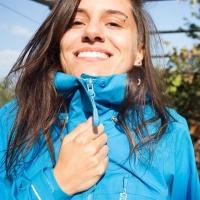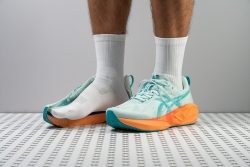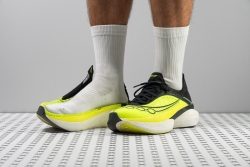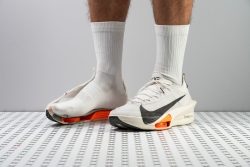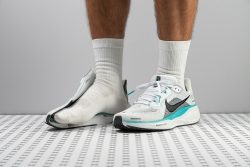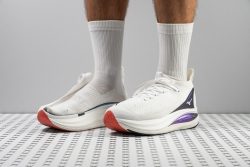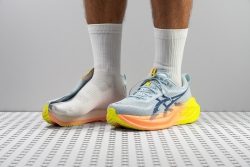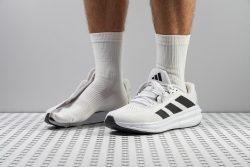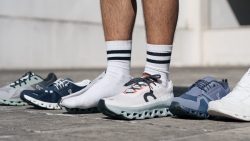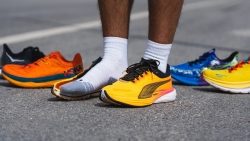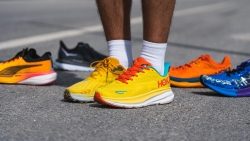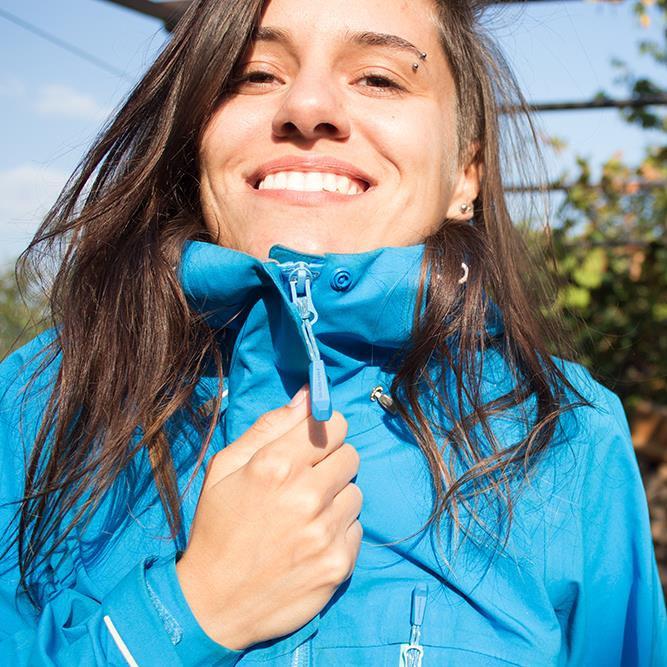7 Best Running Shoes For Supination in 2026
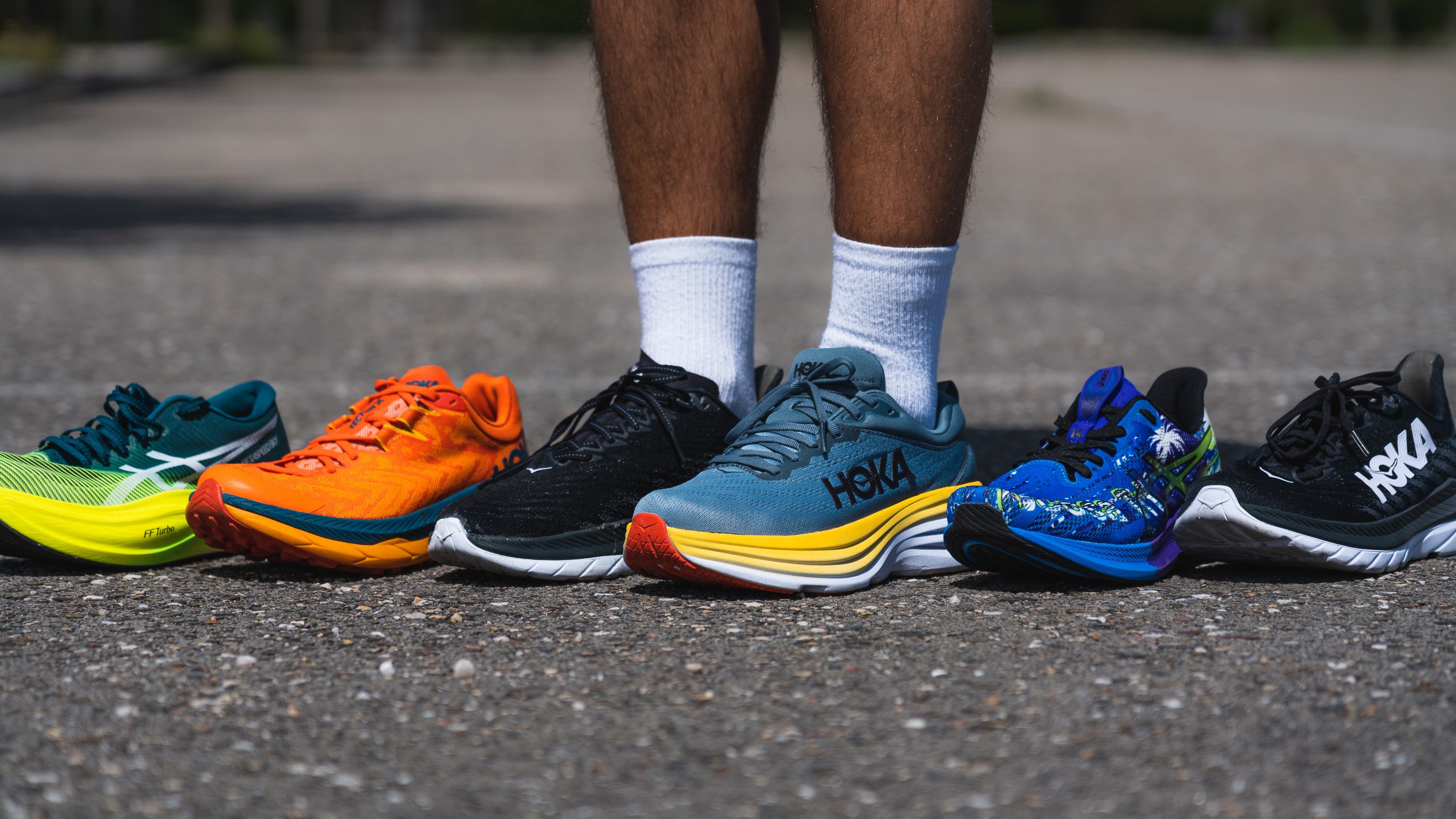
We buy shoes ourselves. We earn commissions when you buy through us, at no extra cost. Why trust us
Supination happens when runners put more stress on the outer part of their feet during landing. Or, in simpler terms, it’s when the feet tend to roll outward.
Unlike runners who overpronate (their feet roll inward), runners who supinate don’t necessarily need stability shoes. These tend to be very rigid on the inner side, which could worsen supination. Because of this, we recommend neutral running shoes to supinators.
With this in mind, we have tested neutral shoes on our test runs and in our lab and now we can recommend best picks in different categories.
How we test running shoes for supination
Apart from buying the running shoes for supination with our own money, we have also invested in creating our own shoe testing lab. Here's how we review shoes and find the best picks:
- We run in the supination running shoes to see how they perform, fit and how sturdy they are
- We measure the shoes' shock absorption, energy return, breathability, weight, stiffness, outsole hardness, and other features. This allows us to describe each shoe with 20+ data points.
- We cut the shoes in half on our band saw. This allows us to perform tests that would be inaccurate if done on a whole shoe, plus we're able to examine all the layers, technologies and details that make the shoe
Best running shoes for supination overall
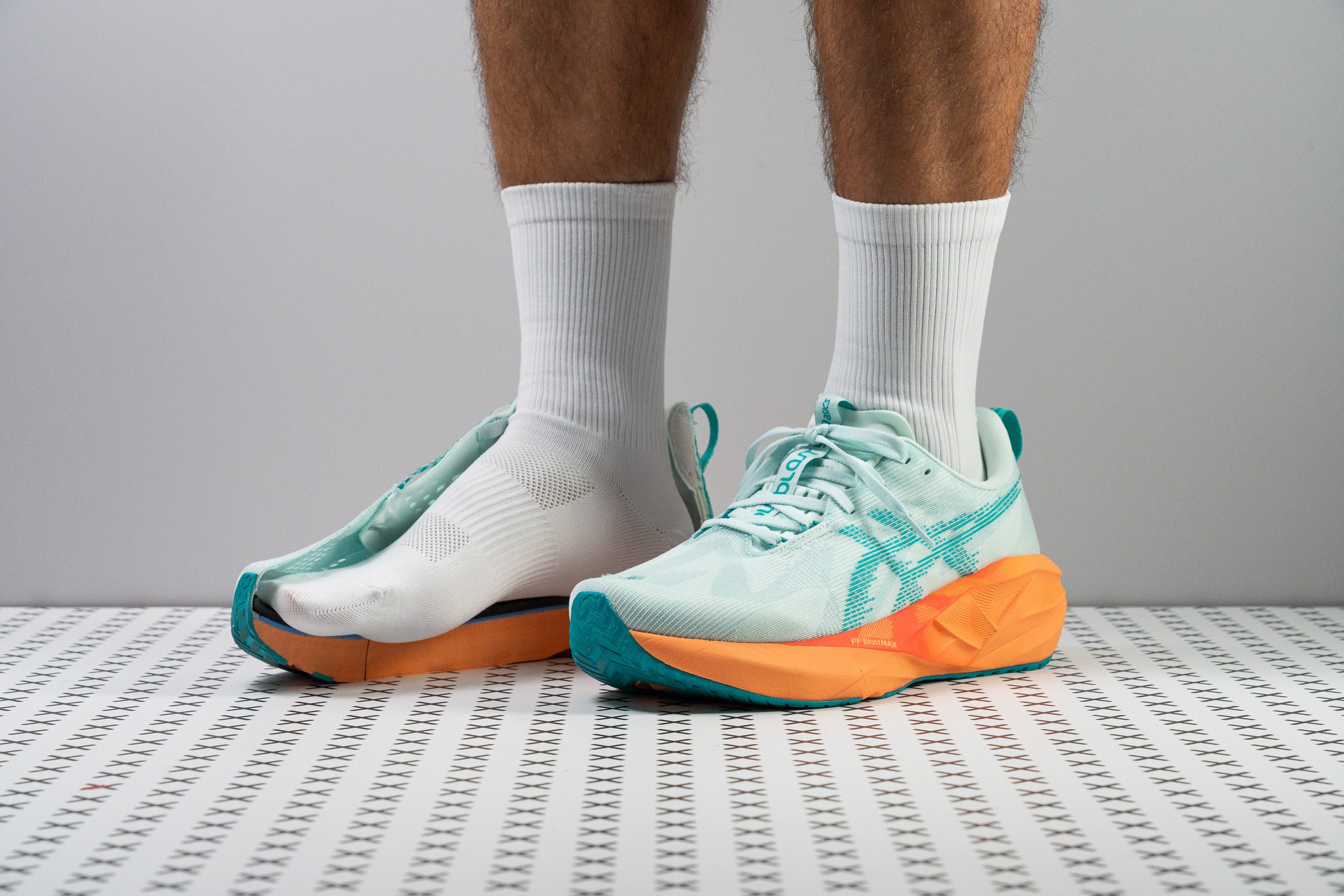






















































What makes it the best?
A one-of-a-kind, versatile shoe that cleverly combines comfort, durability, and support—that’s the ASICS Novablast 5. Our runs and lab results confirm it boasts superior comfort with its sumptuous cushioning, keeping our legs fresh no matter how fast or long we run, making it our best supination running shoe.
Our feet sink delightfully into the foam, which our durometer shows is 17% plusher than average, explaining why we could keep going! Novablast 5 doesn’t stop there and ensures there’s exceptional impact protection no matter where we land with its 40.9/33.5 mm stack.
Despite its height, the shoe feels surprisingly light on foot. Our scales confirm it’s only 9.0 oz (254g), right below the average running shoe despite its maximum height. Each stride feels effortless!
Other than the soft and springy cushion, it promotes a stable ride with its very wide platform. Our 122.3/97.6 mm calliper measurements confirm its width is at par with other dedicated stability shoes.
Testing the outsole against long miles didn’t have much effect on the rubber. We couldn’t resist checking it against our Dremel test and it beat the average by showing more resistance to wear. However, it didn’t deliver the grip we needed in wet conditions. Those who need maximum traction should find alternatives.
Pros
- Improved energy return with FF Blast MAX foam
- Plushiest foam in a Novablast yet
- Keeps the same price as v4
- Higher stack height for extra cushioning
- Enhanced flexibility
- Lighter than its predecessor
- Best Novablast ever for wide feet
- Exceptional weight-to-cushion balance
- Works for short, medium and long runs
Cons
- Breathability could be improved
- Toebox durability
- Toebox durability
Supination running shoes with the best energy return
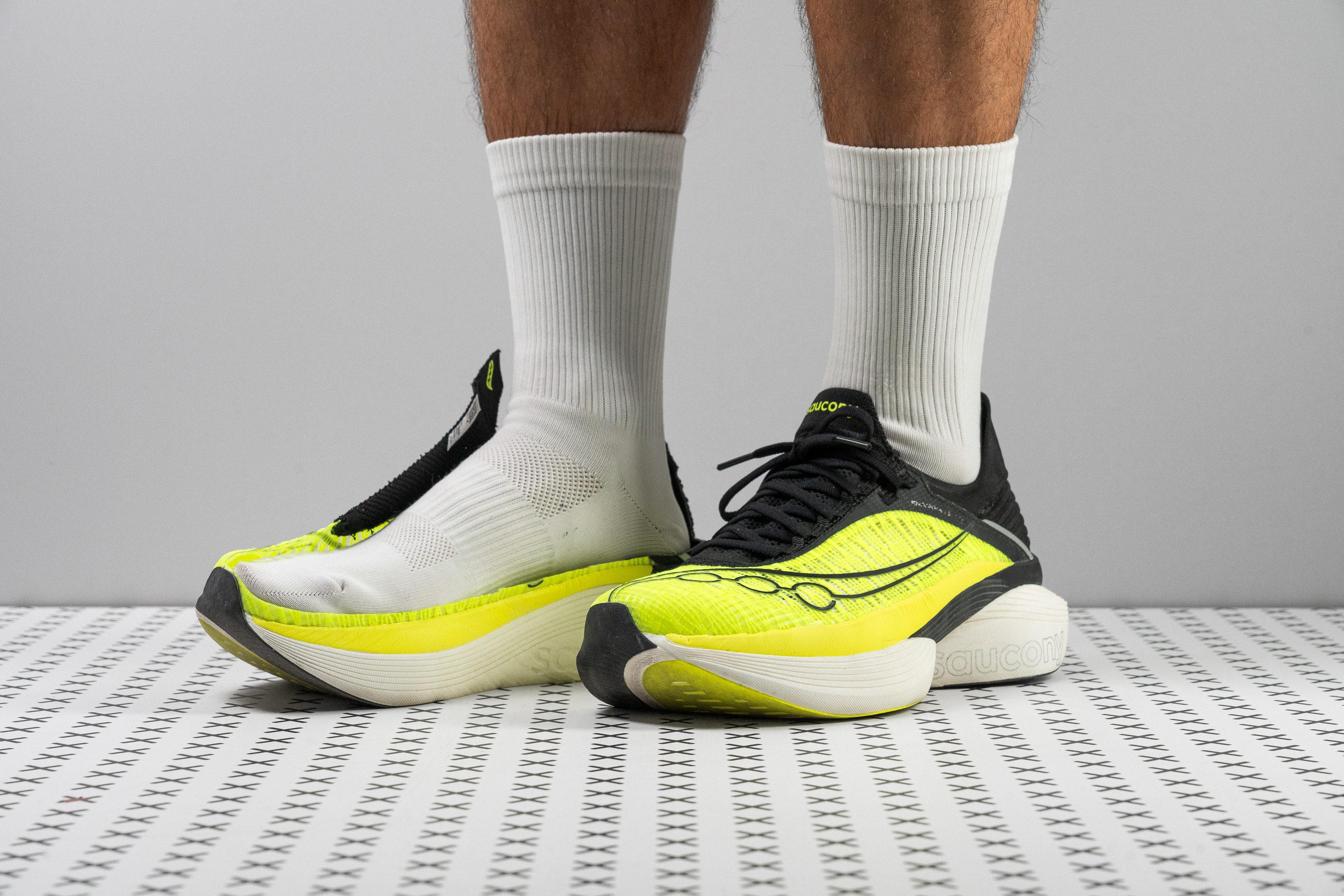














































What makes it the best?
As an all-rounder performer, this lightweight marvel took our runs by storm. It lives up to its name, helping us fly through the miles with much-needed comfort and speed. Because of all this and more, the Saucony Endorphin Elite 2 is our supination running shoe with the best energy return.
A spoon-shaped carbon plate spans the entire length of the midsole, exhaling energy rebound with every toe-off. But what stands out is its highly responsive cushioning, achieving unprecedented energy return scores of 80.6% and 82.1% in the heel and forefoot, respectively.
Bringing us up to speed is its feather-like build that makes lifting each foot feel effortless. At a mere 6.9 oz (197g), it’s 25.7% lighter than the average.
To further emphasise comfort, EE2 has generous cushioning for impact absorption. The sky-high 39.9/32.4 mm stack proves we’ll never run out of underfoot protection. In addition, we measured the IncrediRUN foam’s shock absorption, and it continues to lead the pack with 157 SA and 123 SA in the heel and forefoot.
However, its tapered toebox may cause discomfort to those with wide, swollen, or high-volume feet. Those who need extra internal room should try alternatives.
Pros
- Record-breaking energy return
- Ultra-plush foam
- Fantastic shock absorption
- Addictively bouncy and fun feel
- Ideal for the marathon distance
- Durable and breathable upper
- Improved lockdown with knit tongue
- Stack height maxes out the legal limit
- Explosive, forward-driving ride
Cons
- A touch heavy for being an elite supershoe
- Budget-crushing price
- Lateral stability is extremely bad
- Lacks specific support for heel strikers
Best race running shoes for supination
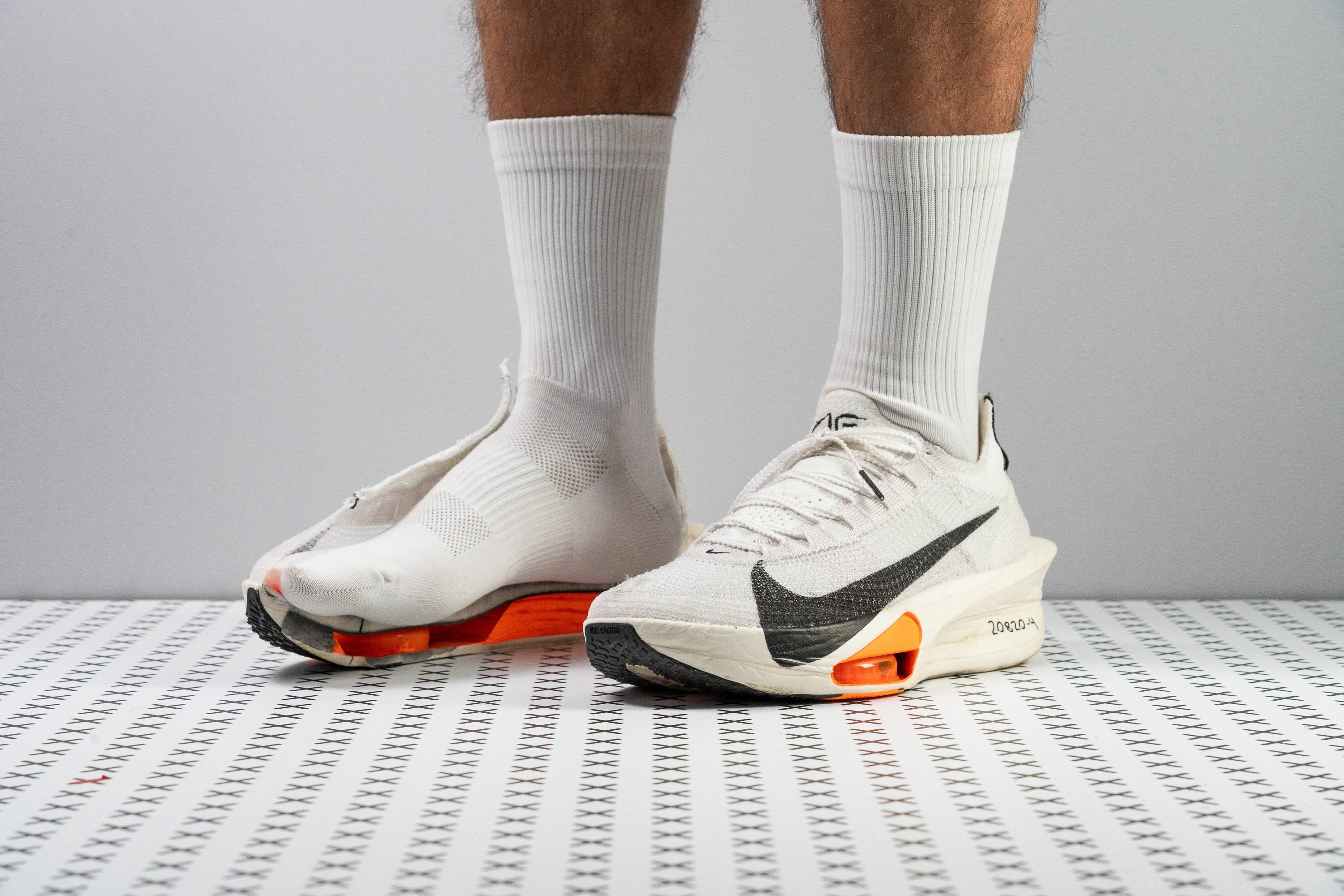













































































What makes it the best?
Nike’s Alphafly 3 is a game-changer for setting personal bests, exhaling electrifying speed while delivering the cushioning and support we need. Its elite midsole is made for winning, and our lab agrees it’s the best racer for supinators.
From the moment we took our first strides, it was evident that we had a champion beneath us. Each toe-off has a strong energy rebound, propelled by the dynamic FlyPlate and Air Pods integrated within the midsole. Its exceptional responsiveness comes from its high level of stiffness. Our flex test confirms it withstood a formidable 28.4N force to bend to 30º, surpassing the average by a staggering 89.3%.
Further contributing to its powerful core is the superior ZoomX midsole that rises to a skyscraper 38.1/29.6 mm stack for leg-saving comfort. Alphafly 3 incorporates a dual-foam setup: a plush 34.5 AC bottom layer for impact absorption and a firm 47.2 AC foam for support.
All these features are packaged in a sleek design tailored for race day. Its impressive 7.1 oz (201g) lightweight construction outshines the average racer's weight of 7.7 oz (217g). Further emphasising its feathery feel is the unrestricted Atomknit upper that allows exceptional airflow.
Its £280 price tag is steep and may not be appealing to budget-conscious buyers. Those who prefer cheaper options can explore other racers.
Pros
- Remarkably lightweight despite its broad size
- Best-in-class breathability
- Excels in the marathon distance
- Repositioned Air Pods offer a better ride than the v2
- ZoomX foam delivers massive energy return
- Aids in forward momentum, especially when legs begin to fatigue
- Better than ever for 5K/10K racing
- Finally smooth transitions!
Cons
- Heel strikers might wear down the outsole quickly
- The arch could still be a challenge for some
- The sock-like tongue might not suit everyone
Best daily running shoes for supination
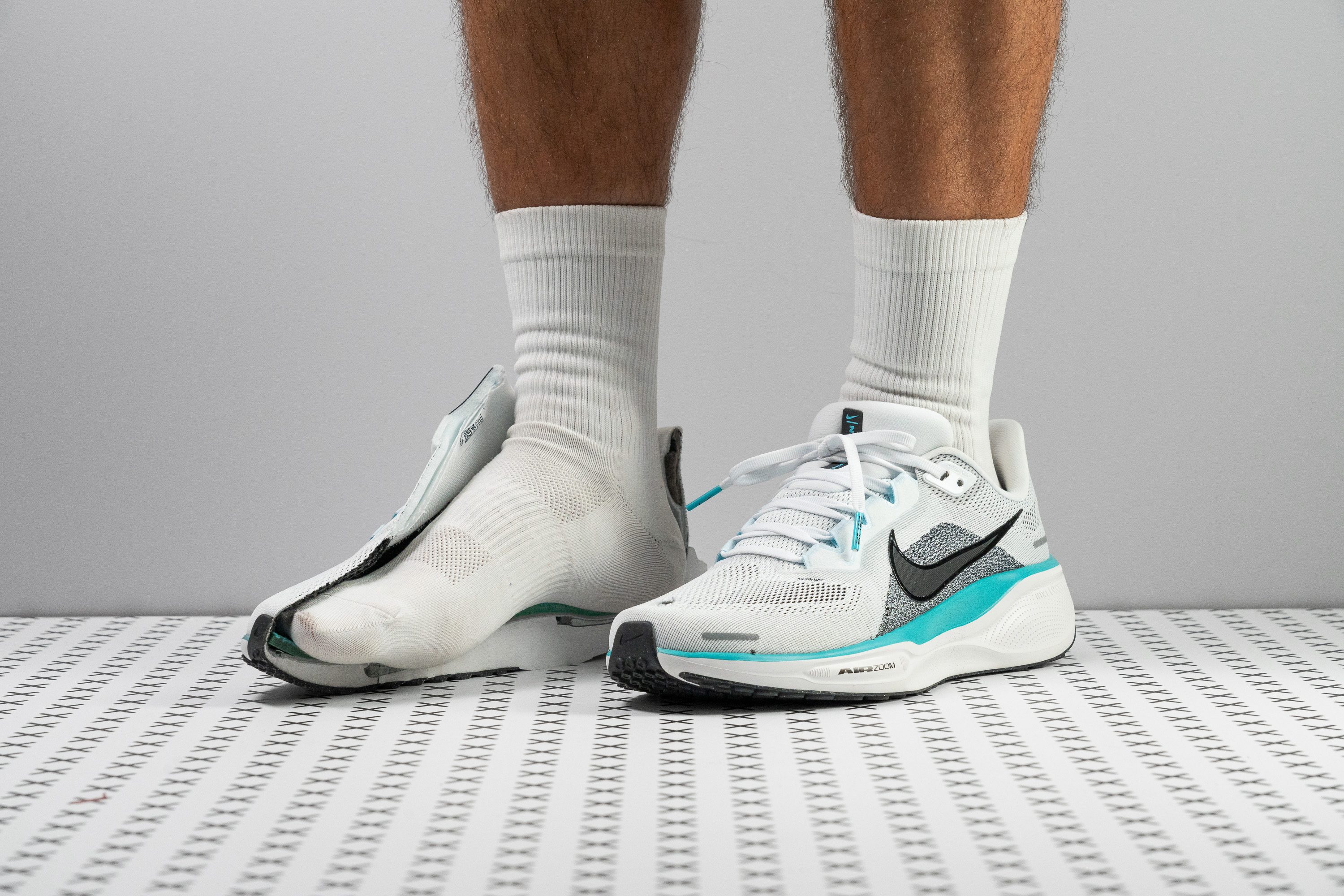





























































What makes it the best?
Countless hours in the lab and on the road led us to the best daily trainer for supination running: Nike’s Pegasus 41. This versatile pair is a valuable addition to any runner's rotation, offering the flexibility needed for easy runs, cushioning and stability for long distances, and a breathable upper as the cherry on top.
The outsole has multiple grooves to offer flexibility when bending our feet, and flexible it is! We moved naturally with barely any resistance. Our 30-degree test confirms it’s 37.3% more adaptive than average.
Switching our attention to the midsole, its upgraded ReactX foam has two Air Zoom units for responsiveness. It keeps a moderate height for ground feel and stability while making the composition lighter for comfort. At 35.2 AC, our durometer shows that it is on par with the average. The midsole sidewalls also add extra support by preventing excessive movements.
The Peg is a comfortable place to be in all day, leaving our feet feeling refreshed. With numerous ventilation holes, our body heat escaped freely. Our smoke test in the lab agrees with an impressive 4/5 breathability rating.
However, this version’s 11.4 mm drop suits heel-strikers more. Those who prefer less harsh drops should check other options.
Pros
- Enhanced for heel strikers
- New ReactX foam!
- Improved breathability
- Plush upper
- Good durability
- Several stability enhancements
- Newly designed rocker and bevel
- Solid performance
- Superior lockdown
- Sustainable features
Cons
- Price increased by $10
- Worse than the v40 in cold temperatures
- Poor grip
- Poor grip
Supination running shoes with the best shock absorption
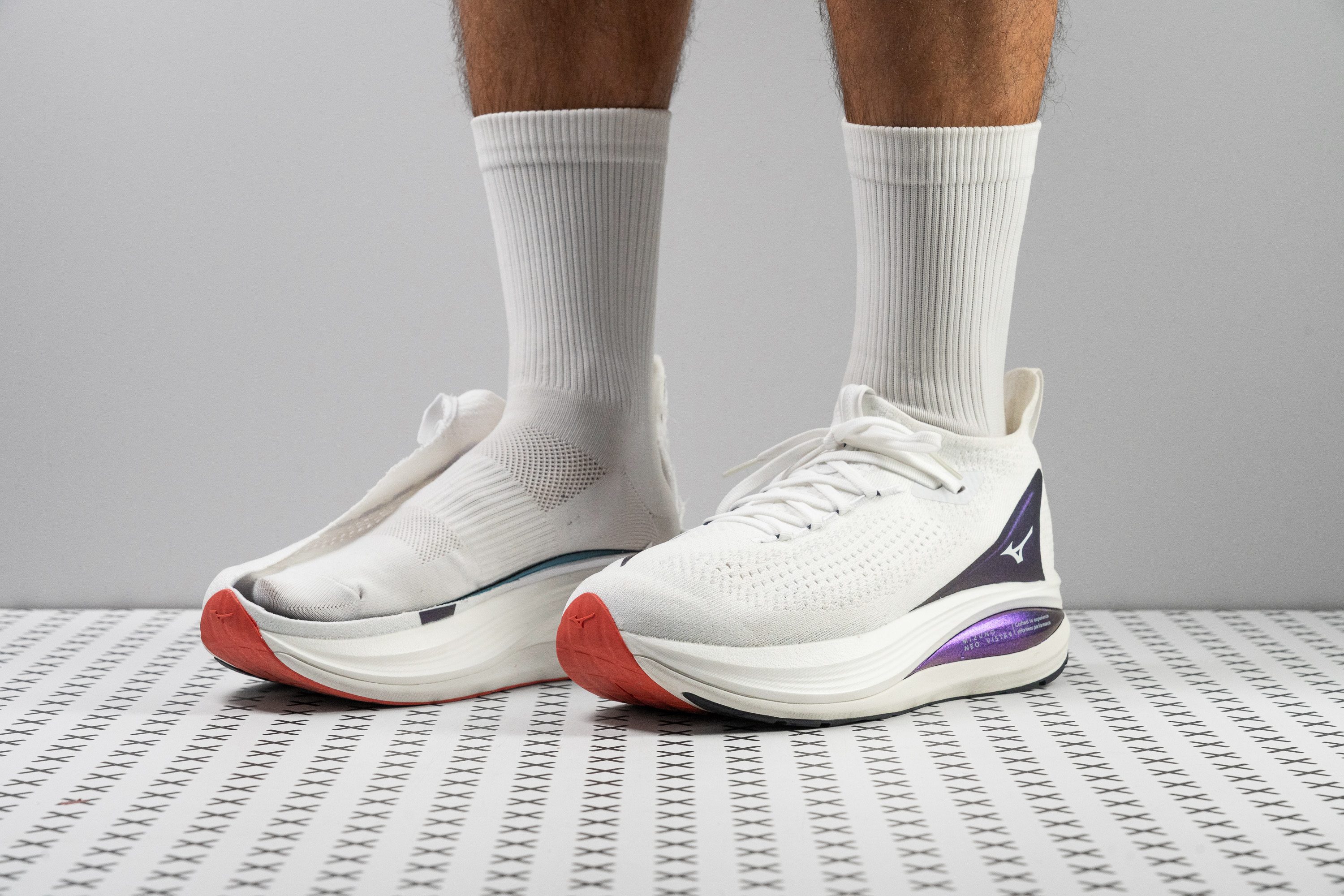
















































What makes it the best?
A one-of-a-kind shoe that cleverly combines comfort and boundless energy—that’s the Mizuno Neo Vista 2. It boasts a supersized stack that’s able to take impact, keeping our legs fresh no matter how long we run. Our runs and lab results confirm this shoe offers the best shock absorption among supination running shoes.
Our feet revelled in the delightful foam, which emerged with a high shock absorption score of 170 SA, 32.8% above average. This explains why we could keep going because the cushion takes the load off our legs! Neo Vista 2 doesn’t stop there and ensures there’s generous cushioning no matter where we land with its 46.0/37.5 mm stack, the forefoot alone being taller than most running shoes’ heels.
Thankfully, its comfort doesn’t equate to a dull ride. Every delightful landing is accompanied by a springy return, verified by our energy tests with high rebound scores of 60.3% in the heel and 59.8% in the forefoot.
Even with the thick platform, it promotes a smooth ride with its flexible midsole. In our bend test, it even emerged 10.0% more pliable than average, boosting its comfort and adaptability.
However, all its premium features come at a steep £200 cost. Those who prefer a cheaper trainer can find alternatives.
Pros
- Massive stack height
- Super-plush Enerzy NXT foam
- Perfect for long runs
- Lightweight for its huge size
- Good durability
- Breathable knit upper
- Roomy toebox height
- Insanely fun!
Cons
- Not enough energy return
- Price hike feels unjustified
- Not stable for heel strikers
Supination running shoes with the best traction
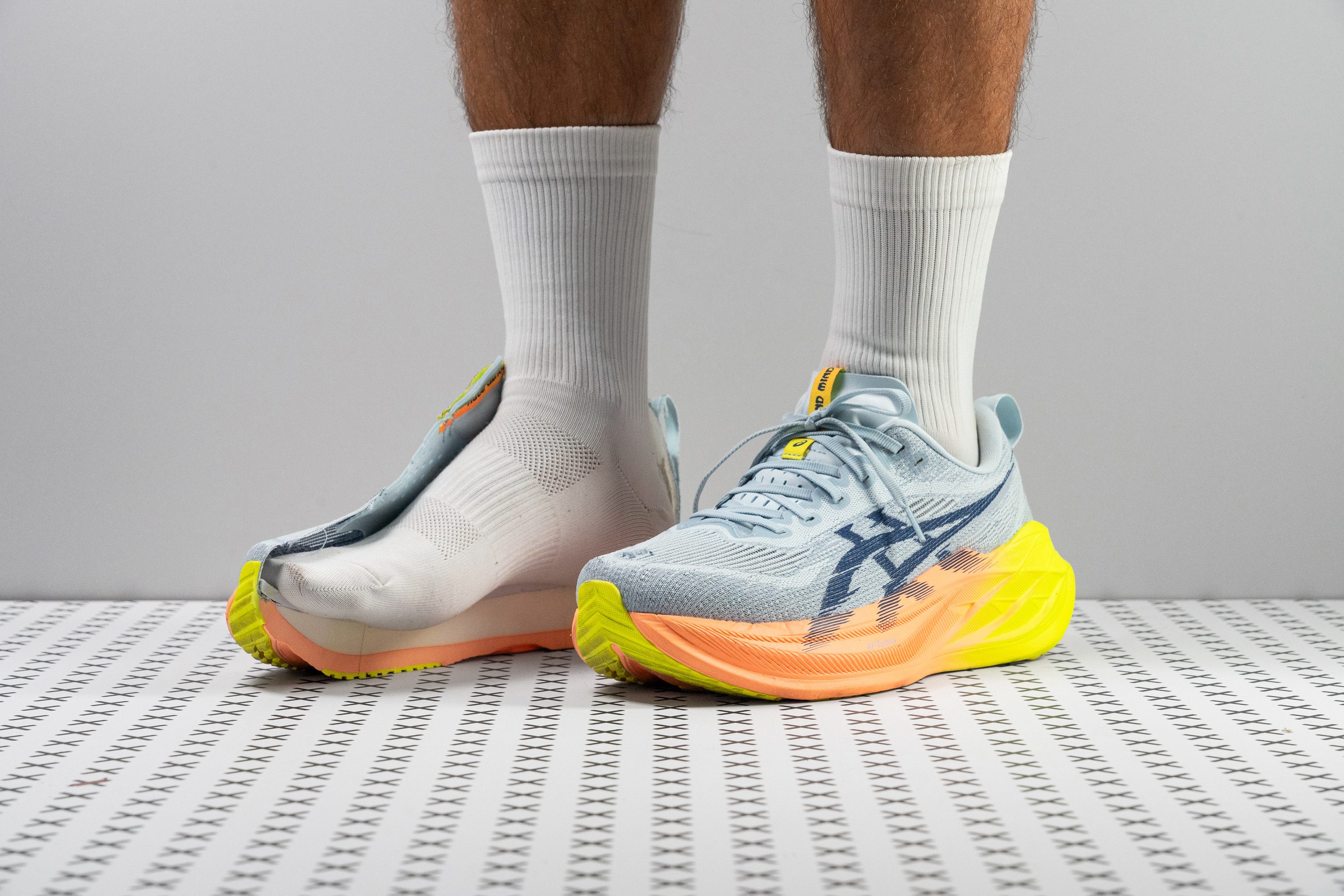



























































What makes it the best?
The ASICS Superblast 2 is perfectly named because it performed superbly in our runs and lab assessments. Its superior cushioning blends impact protection and responsiveness into one trainer, while its ASICSGRIP rubber delivers an unexpected combination of durability and grip. Ultimately, it dominated our traction test among supination running shoes.
We felt in control of each stride we made, even if we encountered wet surfaces. In our lab test, we recorded an impressive 0.83 friction score, which makes it 80.4% grippier than average! While we expected durability to be compromised, this wasn’t the case since Superblast 2 showed 50.0% less damage than average in our Dremel test.
The platform felt so good underneath; we knew we had a lot of buffer between our feet and the ground. Our calliper shows exact measurements of 42.8/34.6 mm, way above average! Its highly cushioned feel is also reflected by high shock absorption scores of 130 SA in the heel and an even higher 138 SA in the forefoot, the latter being 31.4% more protective than average.
Thankfully, the monstrous shoe doesn’t feel bulky because of its responsive foam. We tested for its energy return and recorded solid scores of 65.4% and 65.5% in the heel and forefoot, respectively, creating a fun-filled ride.
However, its fit is on the tighter side, so we can’t recommend this pair to those with wide feet.
Pros
- Fantastic new upper
- Improved overall comfort
- Grippier outsole without cutouts
- Durability enhancements
- Excellent weight/cushioning ratio
- Supreme stability
- Works at every pace and distance
- Exceptional performance without a carbon plate
- Exceptional performance without a carbon plate
Cons
- Slight weight gain
- Fit remains tight
- Minimal tongue padding
- Energy return is not on par with the price
Best budget supination running shoes
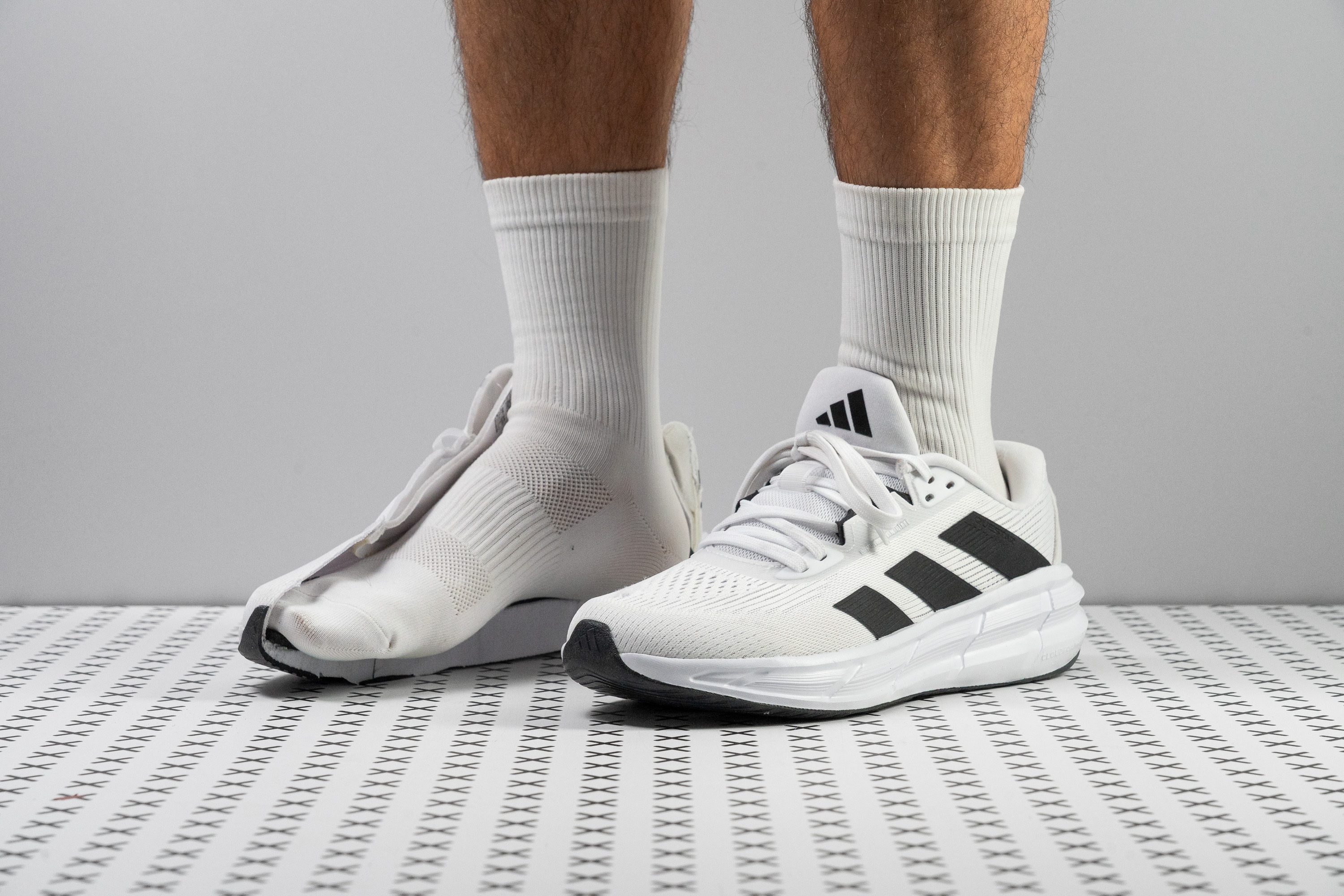












































What makes it the best?
Within the 100 bucks range in our lab, there’s nothing like the Adidas Questar 3. It’s a versatile daily trainer boasting flexibility, ventilation, and reliable durability. At only £80, this shoe is our best budget pick as it outclasses many supination shoes closer to the £150 average.
Questar 3 feels light in the pocket and easy on the foot. Its fluid midsole is so kind to our feet, making it comfortable for all-day wear, walks, and even occasional gym workouts. Our bend test verifies it’s 5.3% more malleable than average.
The upper offers strong airflow for summer but isn’t too exposed to harsh winter winds, making it suitable for all seasons. In our smoke test, it impressed with a 4/5 breathability score.
Behind the scenes, the outsole does the dirty work. It showed no signs of wear after countless test miles. This is thanks to the rubber in the outsole that’s 20.0% more wear-resistant than average, as per our Dremel test, cementing its longevity.
However, we don’t recommend the Questar 3 for rainy seasons because we found the grip lacking in wet conditions.
Pros
- Amazing value for money
- Excellent durability from heel to toe
- Breathable upper
- Stable ride
- Comfortable fit
- Great for casual wear too
- Ideal for heel strikers
Cons
- Rigid build
- Needs to lose some weight
- Subpar grip
- Subpar grip
What supination means for runners
Our joints pronate and it’s a normal thing. But, when we look at the angle, some ankles roll far too inward (overpronation), some are neutral, and the minority of runners actually supinate or underpronate, which means their ankles roll outward. If you’re a supinator, you most likely place more weight on the outside (lateral) side of your shoes.
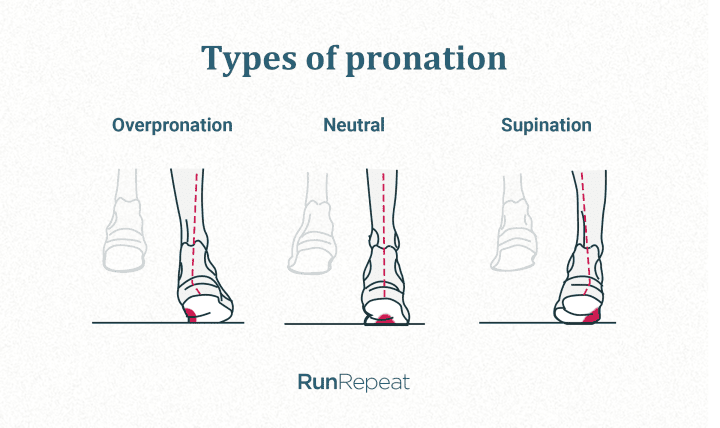
And there’s nothing wrong with supination. Especially if you are pain-free. If you’re experiencing pain and injuries, best to consult a specialist.
There is a wet test that you can do at home to check your pronation.
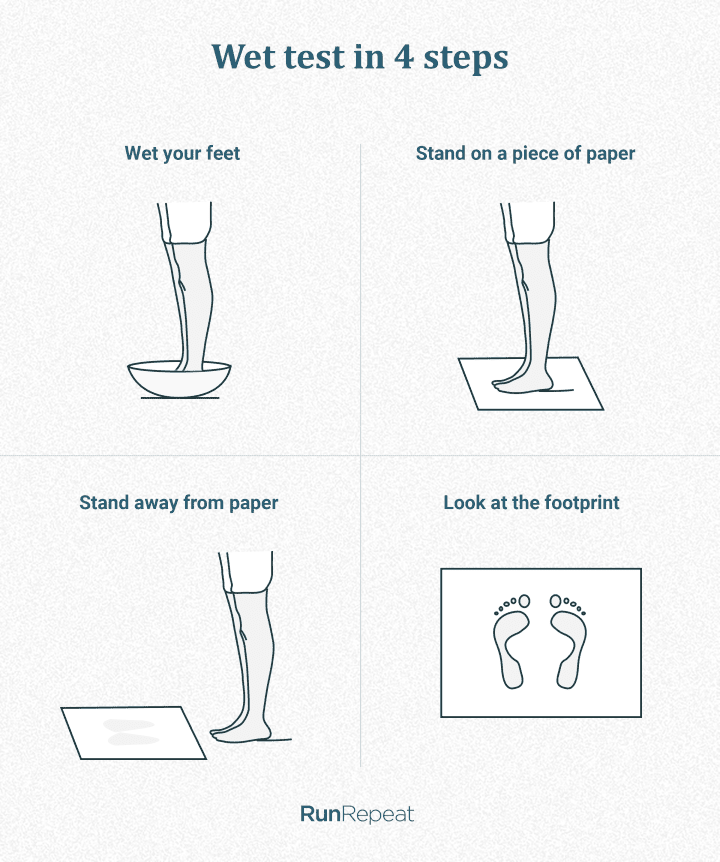
It’s very important to note that the accuracy of this test is not comparable to the assessment and diagnosis done by an orthopedist, ideally a one that specialises in running (works with a lot of runners and/or is a runner themself).
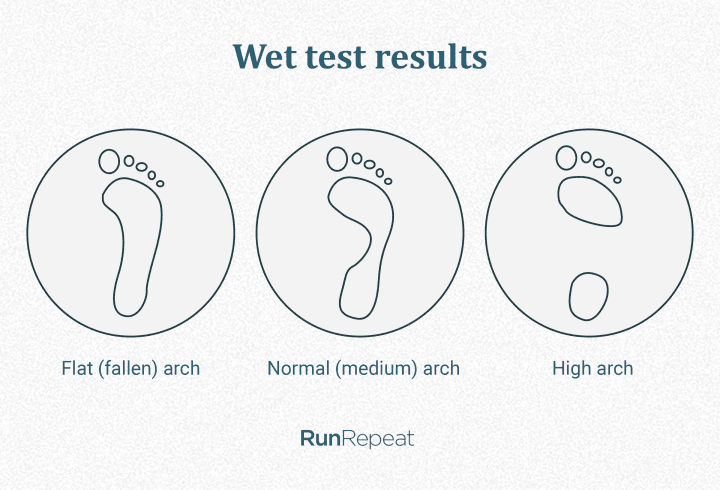
5 features to look for in supination running shoes
Runners who supinate wear neutral running shoes. The difference between those with neutral pronation and supination is usually the foot strike as supinators then to use the forefoot more and in the wear of the shoe. Supinators usually see more wear on the outer side of the outsole (and midsole, when the outsole disappears).
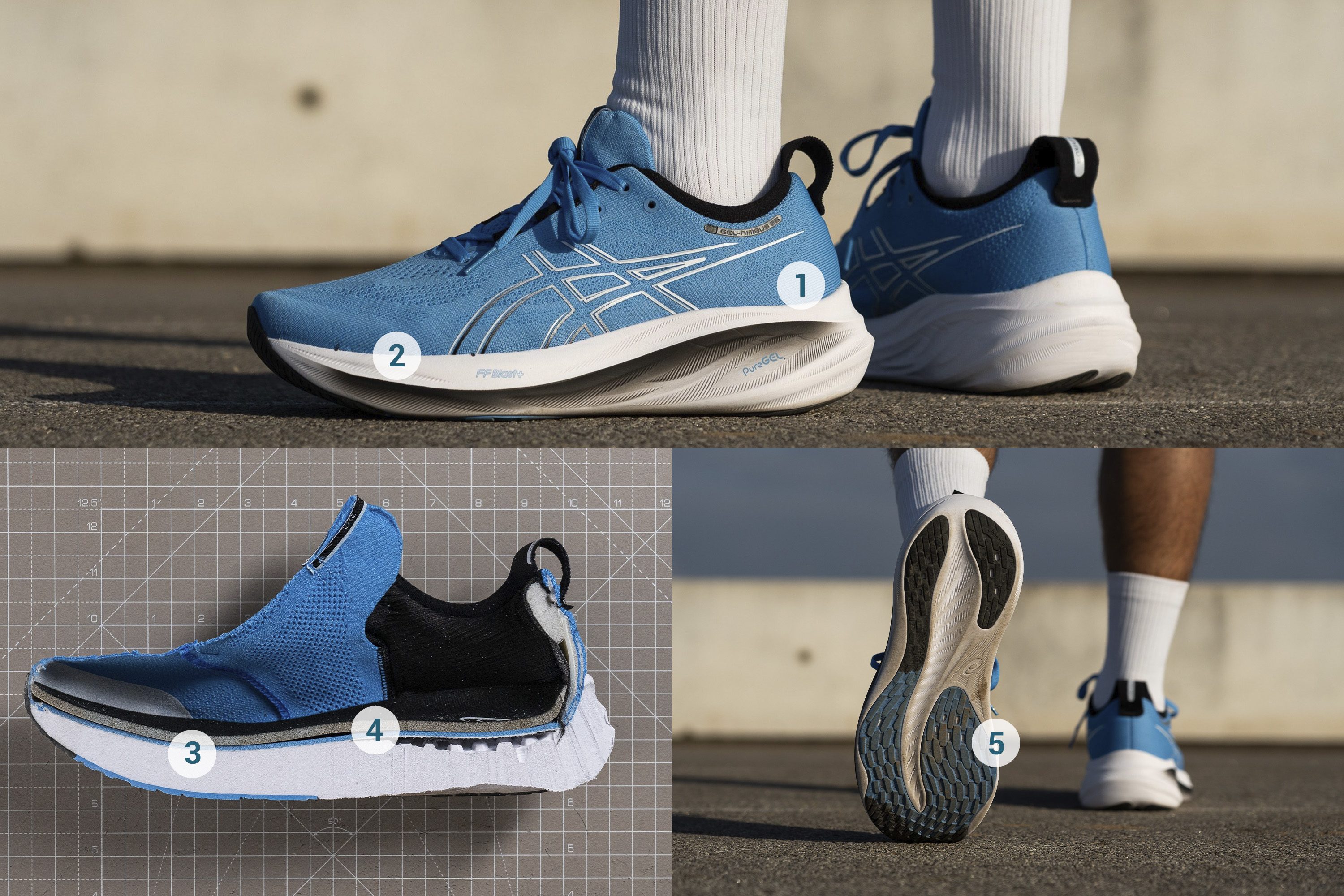
With that in mind, here’s what to focus on when looking for a supination running shoe:
- Cushioned shoe with good shock absorption. Obviously not a minimalist one
- Rich forefoot cushioning. Flatter shoes can work but not for beginners
- Heel drop that’s lower than 10mm. Usually, overpronators (and heel strikers) enjoy a higher drop of 9, 10mm and above
- No arch support features
- Grippy and durable forefoot
We cover all of these features below in greater detail.
Supination running shoes: different widths and toebox shapes
Some runners simply have wider feet, wider toes, or bunions and similar conditions, which is why they need more room in the shoe. Others may have very narrow feet, and here, we explain how we measure the volume of the shoe and how you can look for the fit you need.
In order to measure the volume of the shoe, we first make a gel mould of shoe's interior
Once the gel has set, we measure the width of the shoe in 2 places.
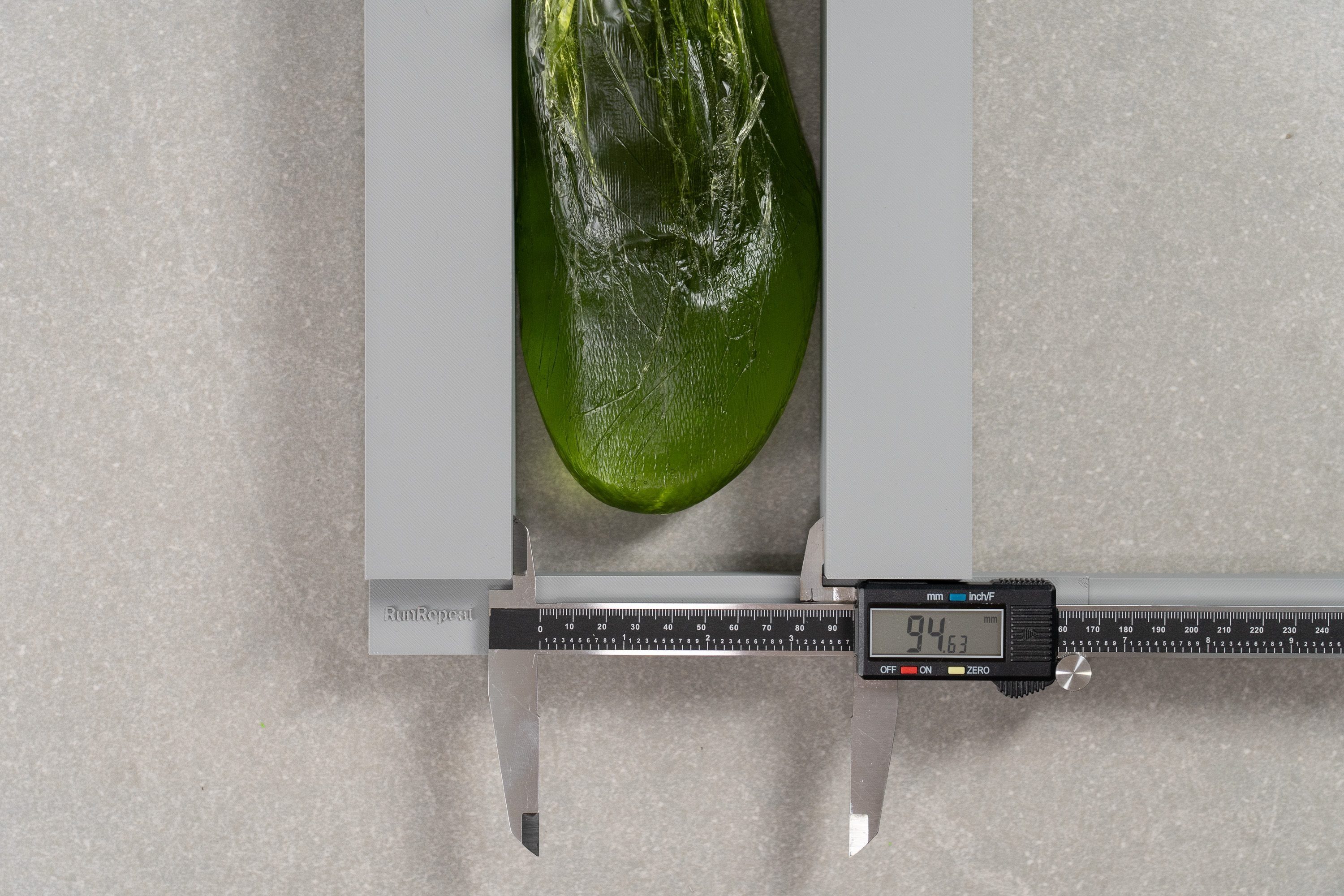
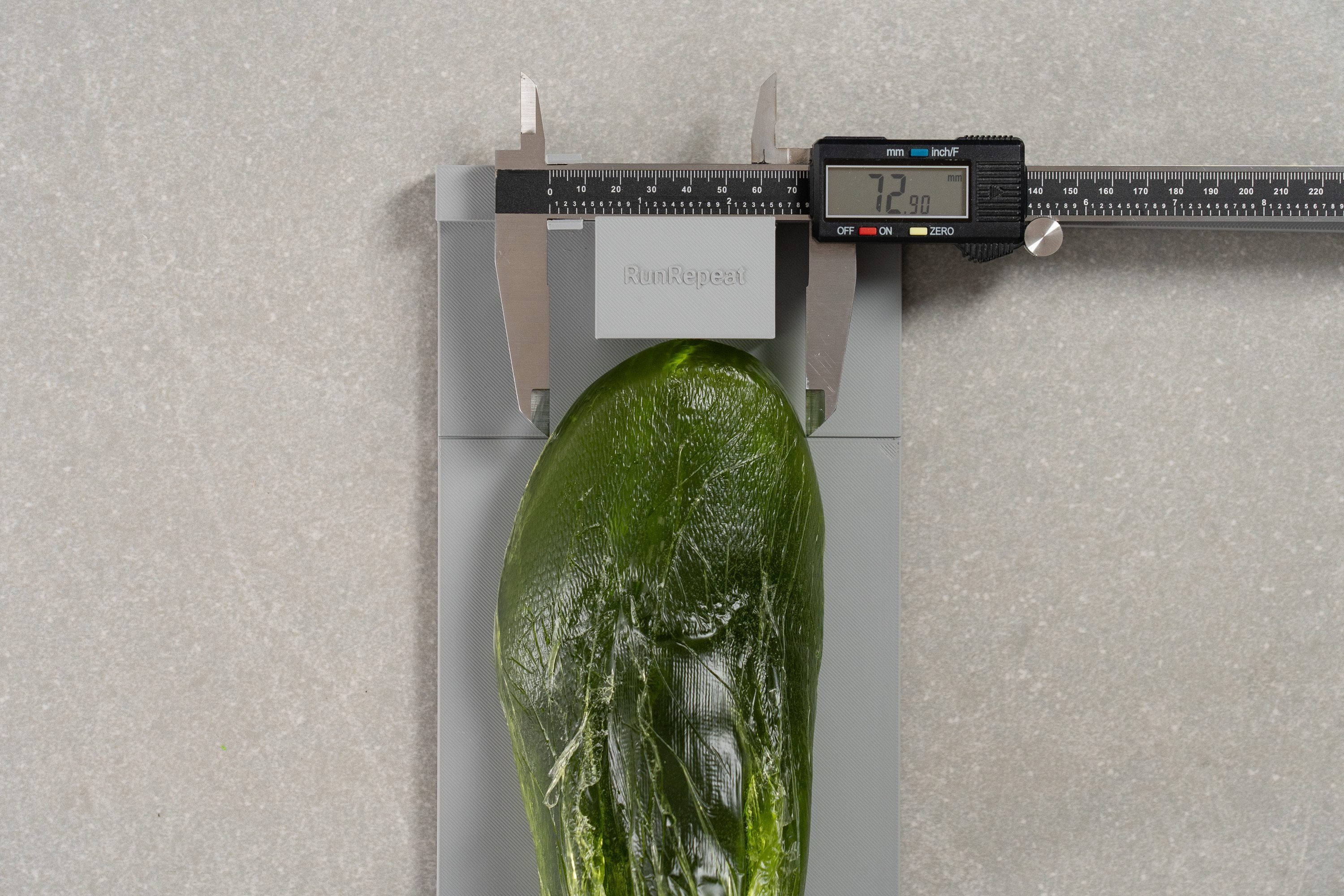
Having these 2 measurements allows us to understand how pointy the toeboxes are and which shape would suit us more.
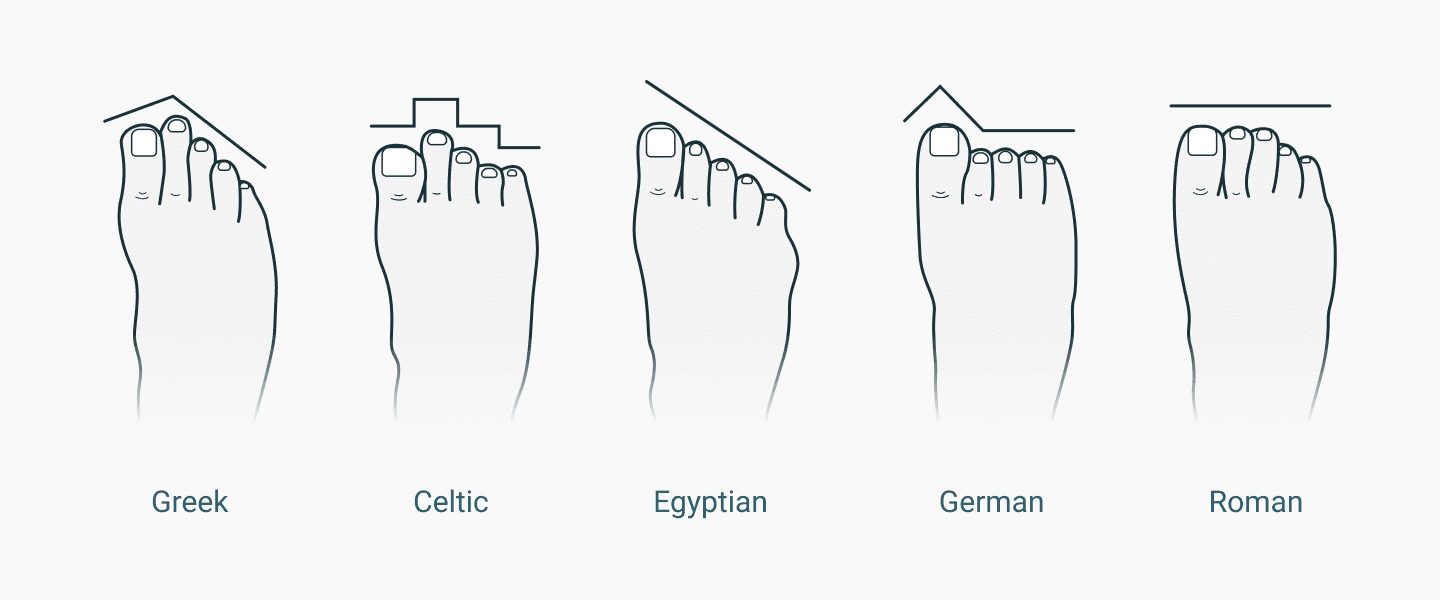
Different toe shapes ask for different toebox shapes!
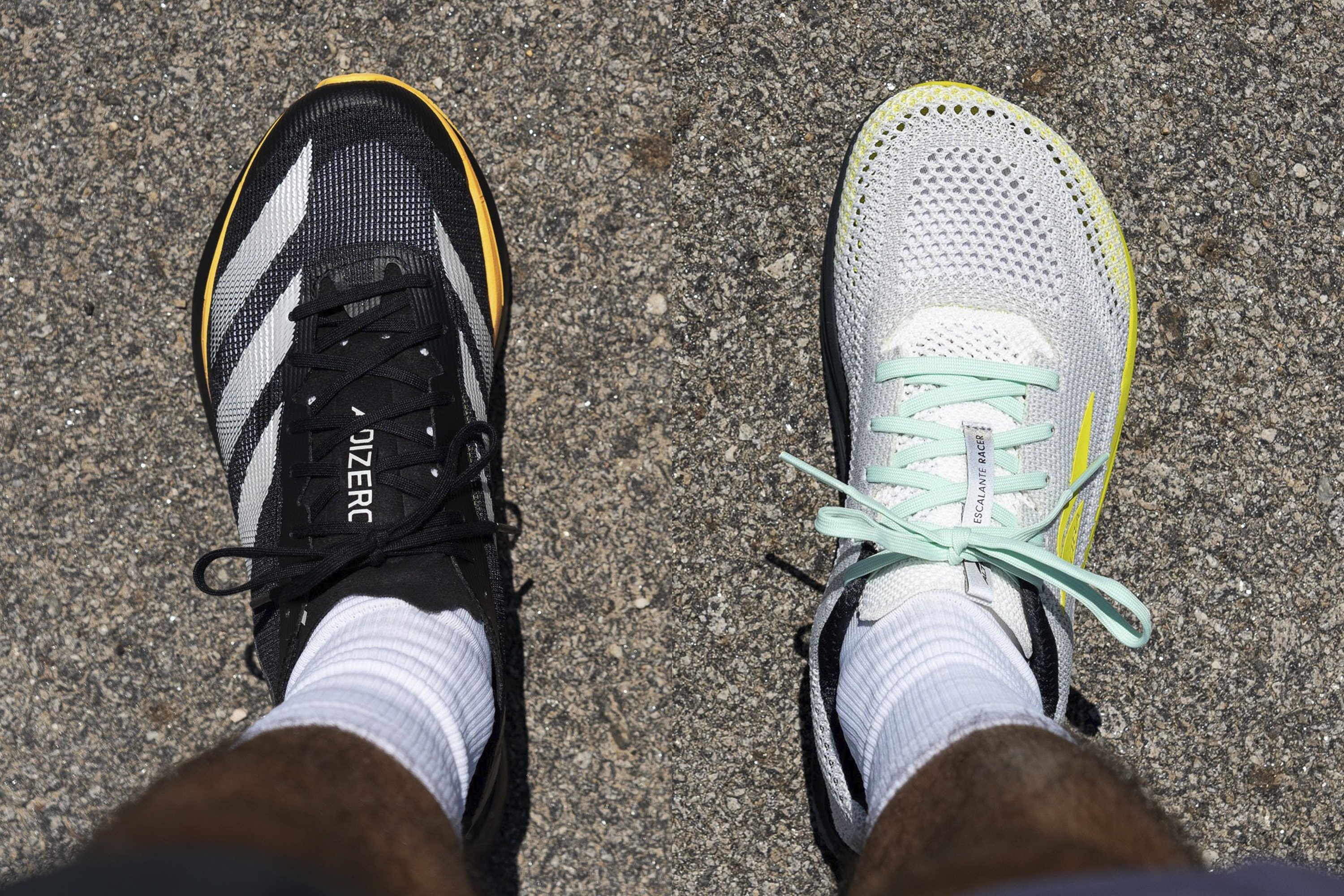
Knowing all this, you can look for more room in one of those 2 places.
This gel mould is great because we can also measure the height of the toebox. Some runners need vertical room as well, so knowing the exact height is great when avoiding pressure on the toes, black toenails, and similar.
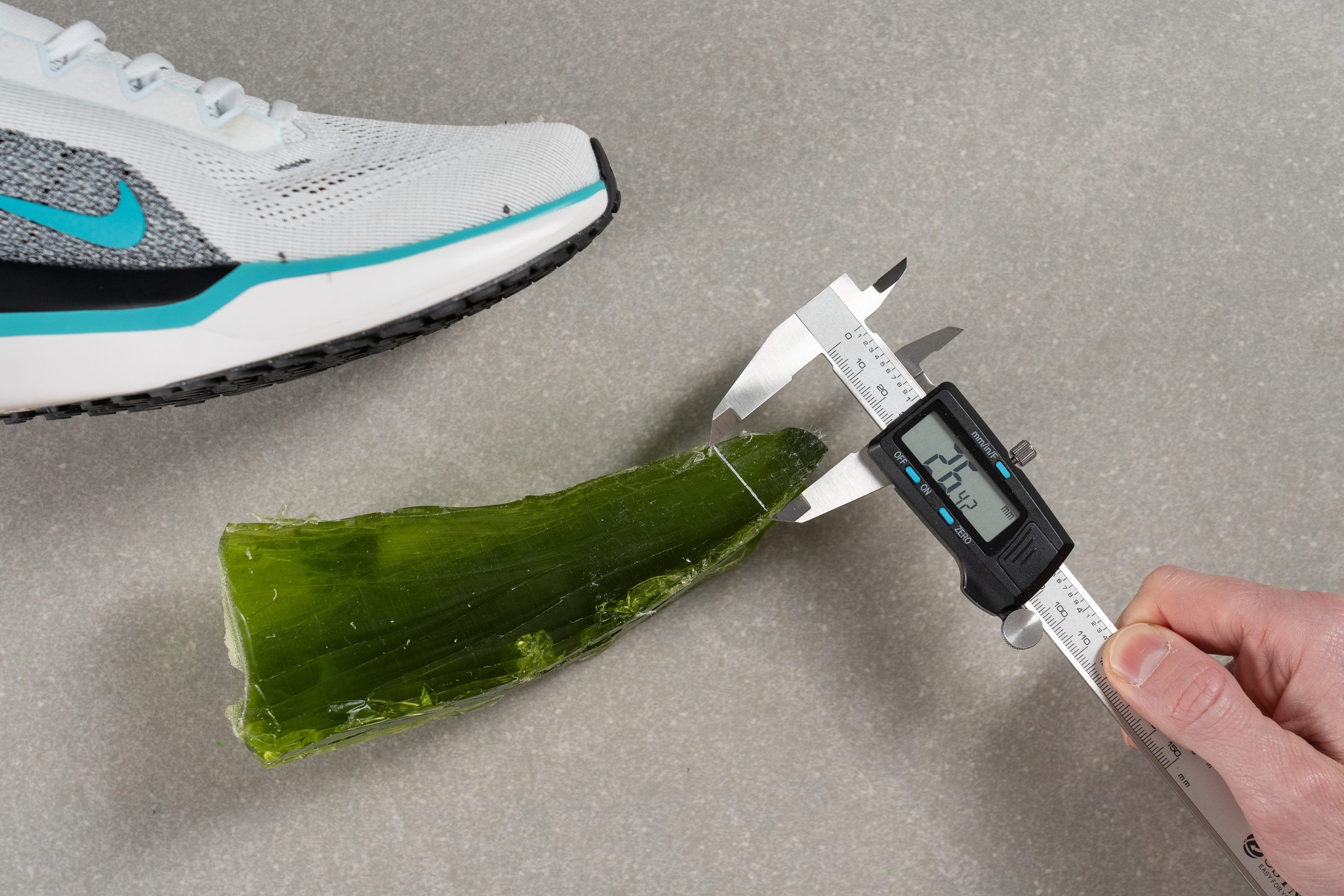
Protective forefoot is a must
Especially if you’re a beginner. Minimalist shoes usually have lower stack heights and less protection. They are great for strengthening foot muscles but ask for an adaptation period and are not recommended to beginners.
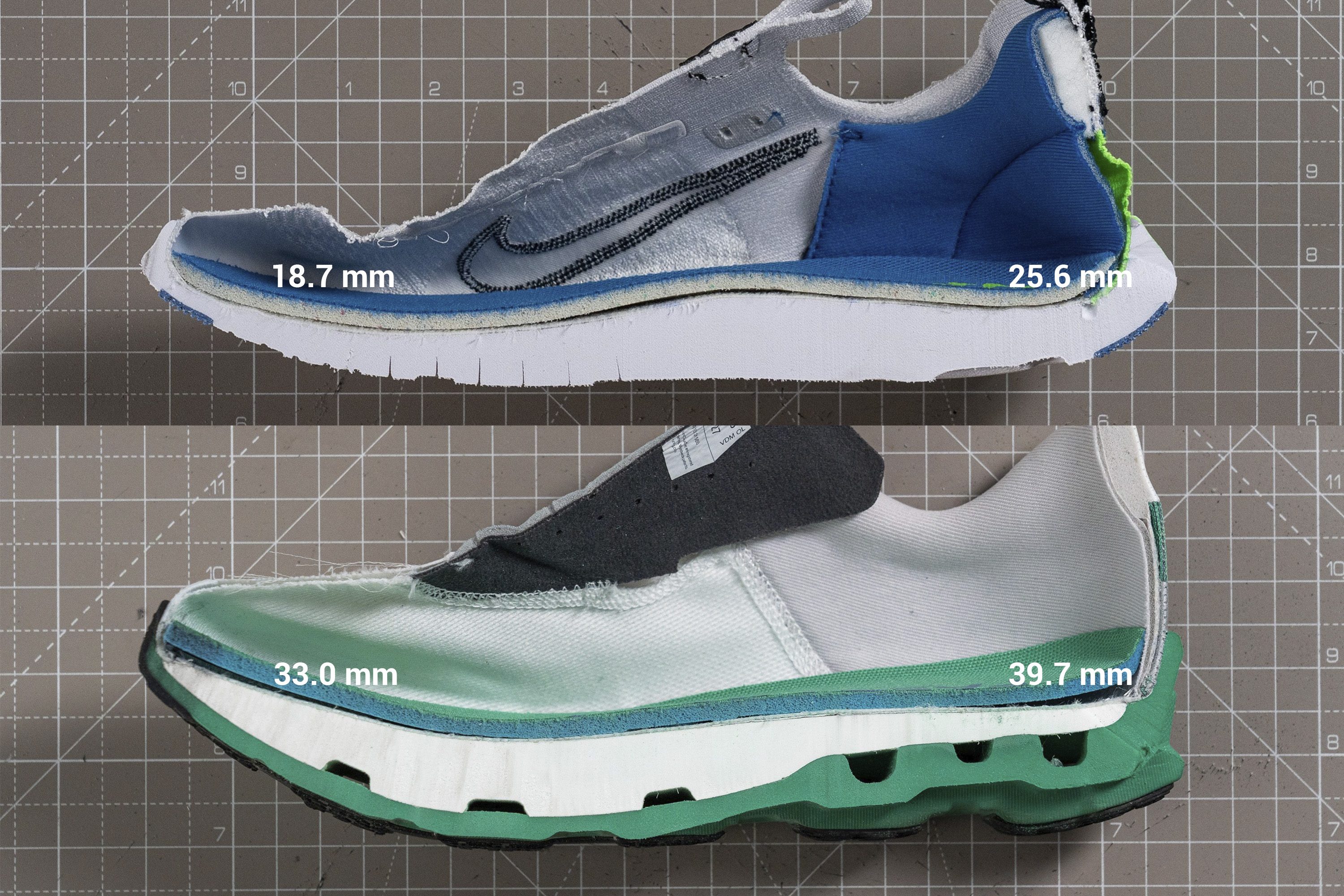
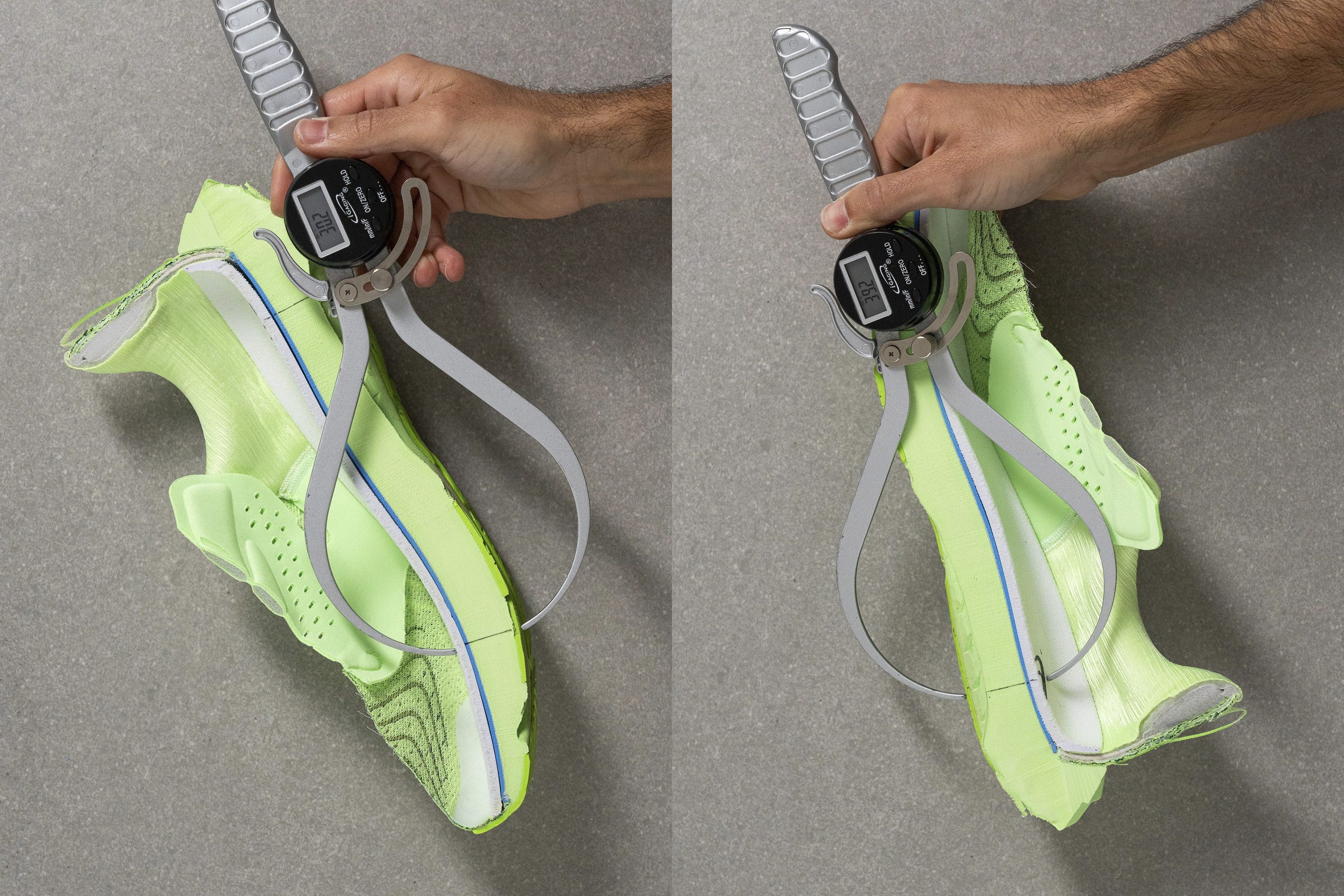
However, stack heights don't tell us how good the cushioning is; they only tell us how much of it there is. To address this, we measure the shock absorption. This feature tells us how protective the midsole is, or how good it is at dampening the impact forces every time you hit the ground.
Obviously, the higher the shock absorption, the better because it means that the midsole is dealing with the majority of impact forces, not our legs. The result of our lab test is given in SA, and when SA at the heel is lower than 110, we consider it low or not enough. Moderate shock absorption falls between 110 and 130 SA, and anything above 130 SA is considered high or, well, great!
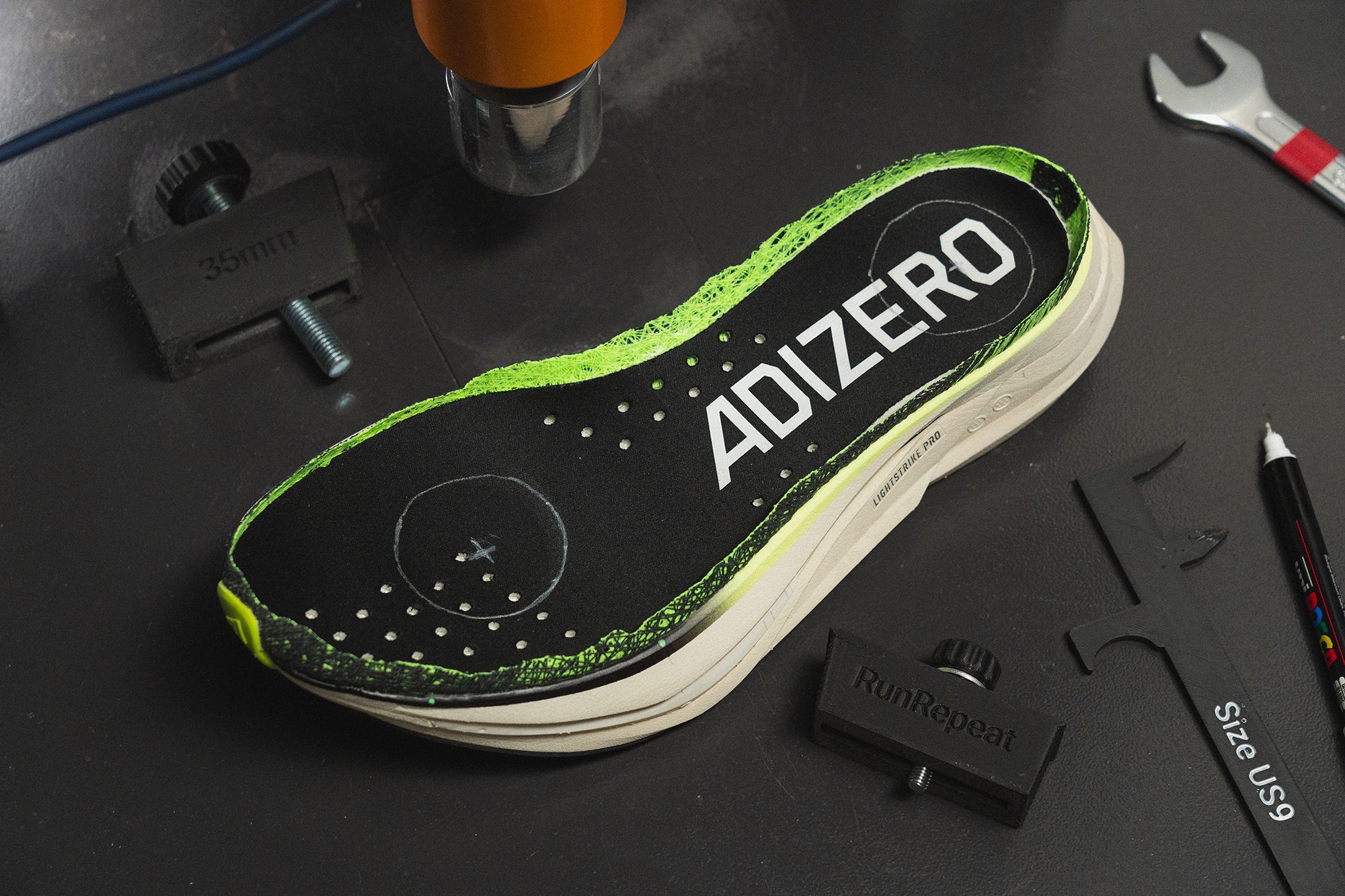
High heel drop is out of the question in supination running shoes
Heel strikers (and overpronators) usually enjoy a higher heel drop because this means more cushioning for them where they need it: at the heel. Beginners are usually advised to go for a 10mm drop.
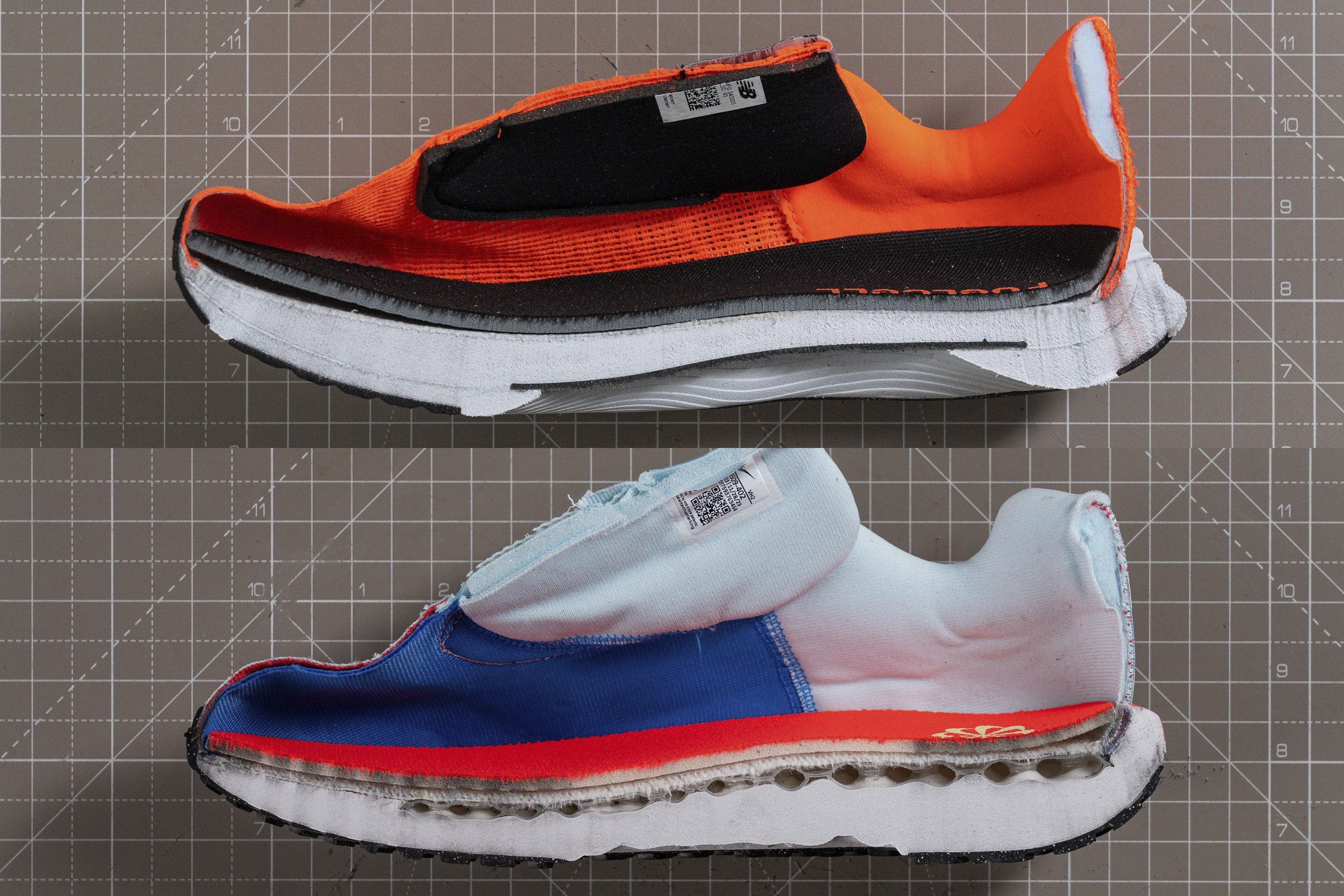
However, when you’re landing at the forefoot, having a high heel toe to drop can feel very chunky and bothersome. We recommend finding shoes that have a heel drop lower than 10mm. If you’re not used to a lower drop, like 1-4mm, then look for a shoe that has a heel drop of 5-9 mm.
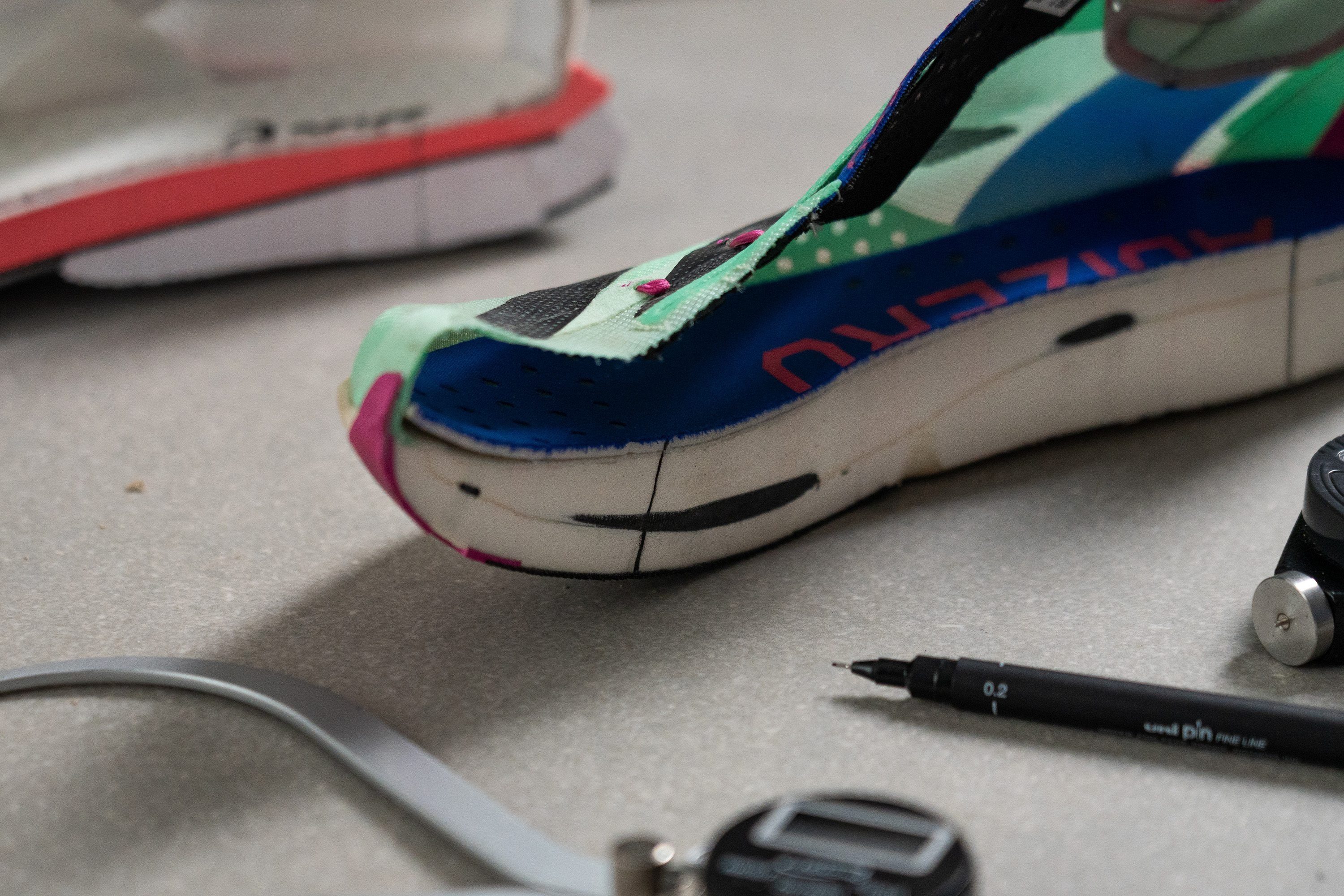
As if this wasn’t enough, we have to warn you: brands often publish specifications where a heel drop is simply wrong. We have found many cases like that and some are rather extreme, where the measured heel drop is 2x bigger or smaller! than the advertised.
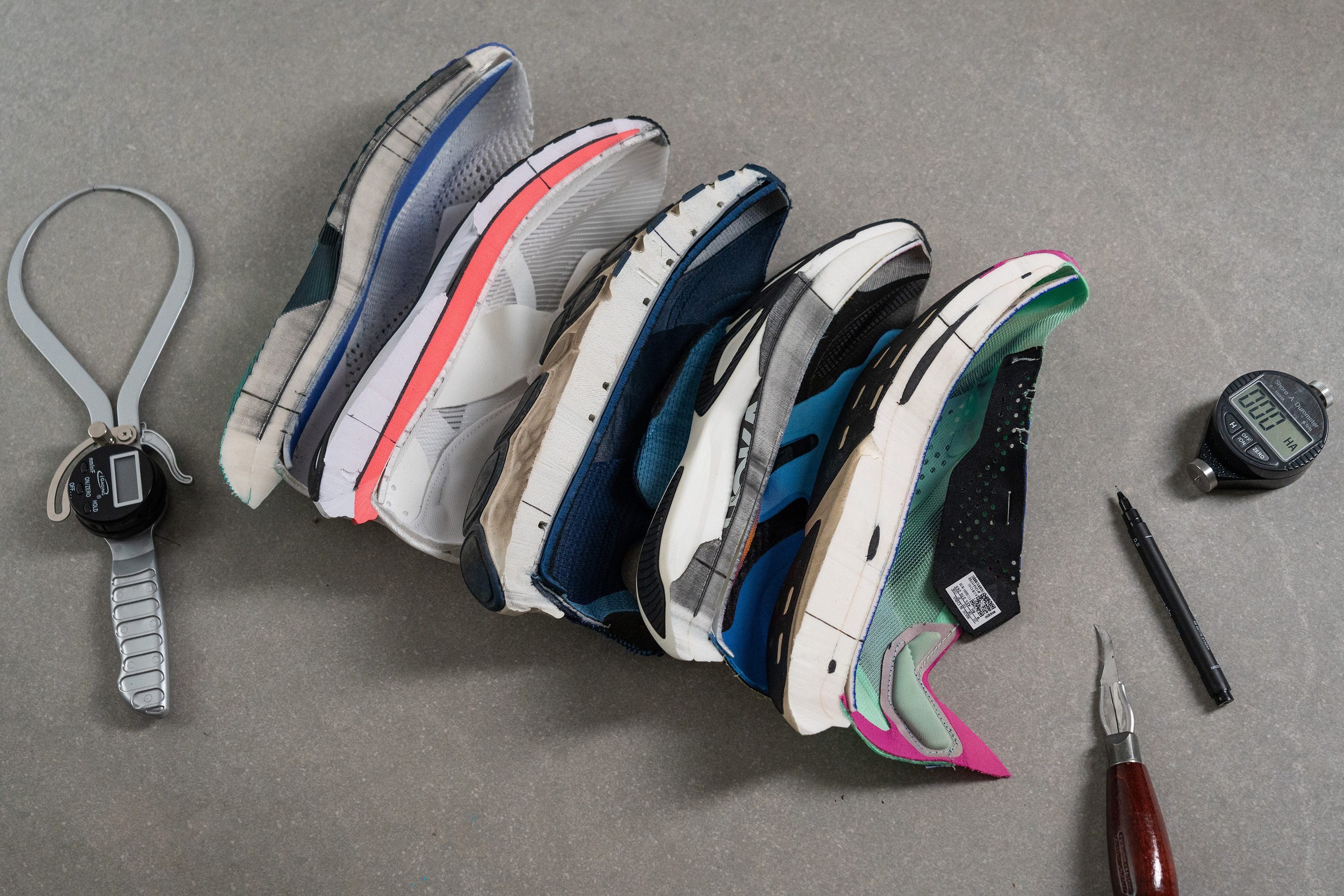
Our heel drop measurements, or stack height measurements to be precise, are standardised. We honour the guidelines from WorldAtheltics and measure the heel stack height at 12% of the internal length and forefoot stack height at 75% of the internal length.
Here’s the heel drop of best-rated running shoes for supination:
You can always check the drop measurements on our website. If you’re curious about all the wrong measurements, read our in-depth guide How brands' heel-to-toe drop measurements differ from reality in running shoes.
How firm are supination running shoes
In our shoe lab, we cut shoes in half to be able to stick an Asker C durometer needle into the foam. Of course, cutting the shoes in half allows us to do other tests as well, but we’ll focus on softness now.
Durometer is a digital device that lets us know how firm or soft the foam is. Lower numbers on its display mean the foam is softer and higher numbers mean it's firmer.
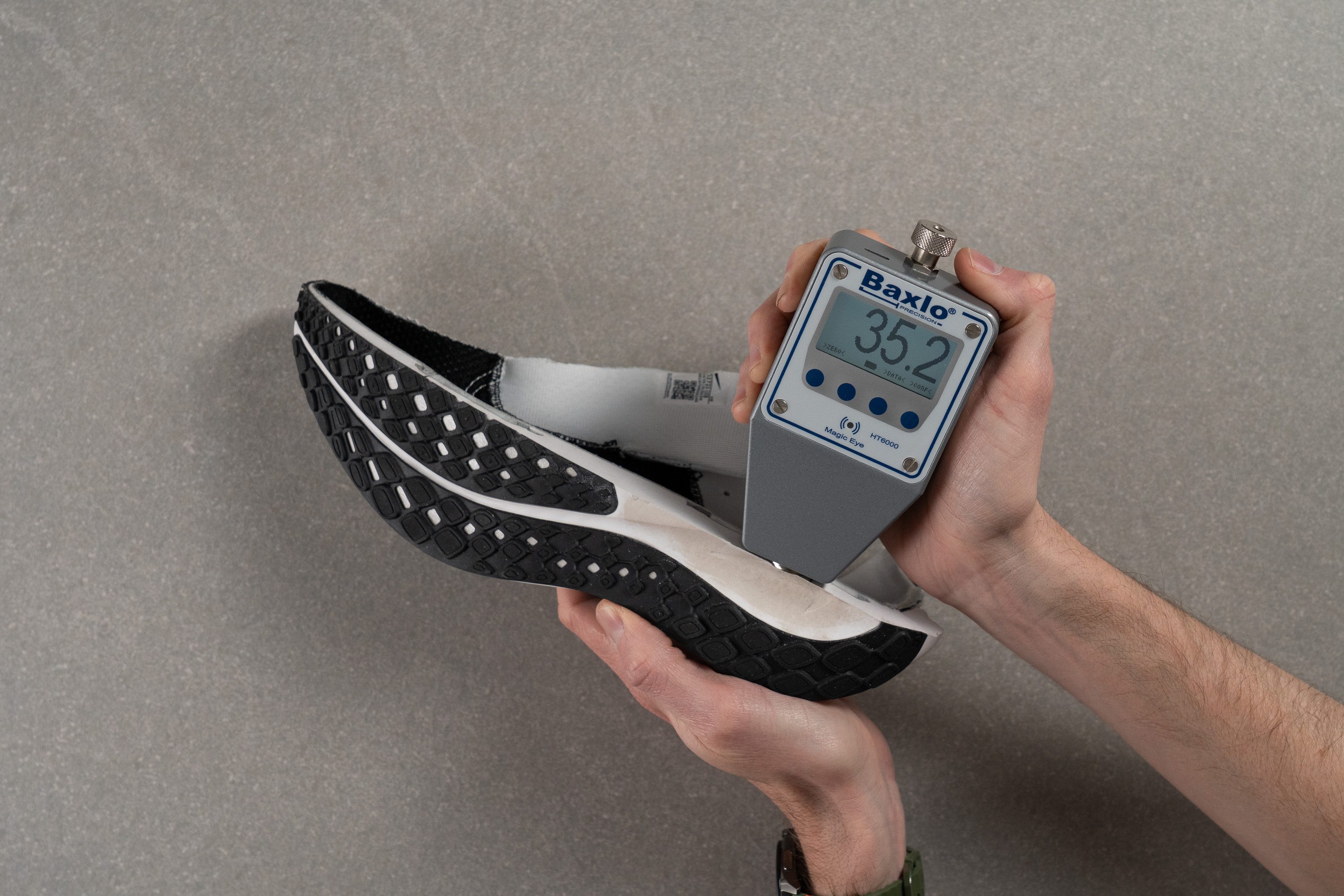
If this is your first time seeing durometer results, here’s how foams from best-rated shoes for supination scored:
If you’re looking for the softest option out there, here are our suggestions:
And, in case you prefer a firm ride, here are currently the firmest supination options. These tables are regularly updated with every shoe review we publish.
Look for durable outsoles in running shoes for supination
When it comes to outsole tests, we perform 2 of them: measuring its thickness and the durability.
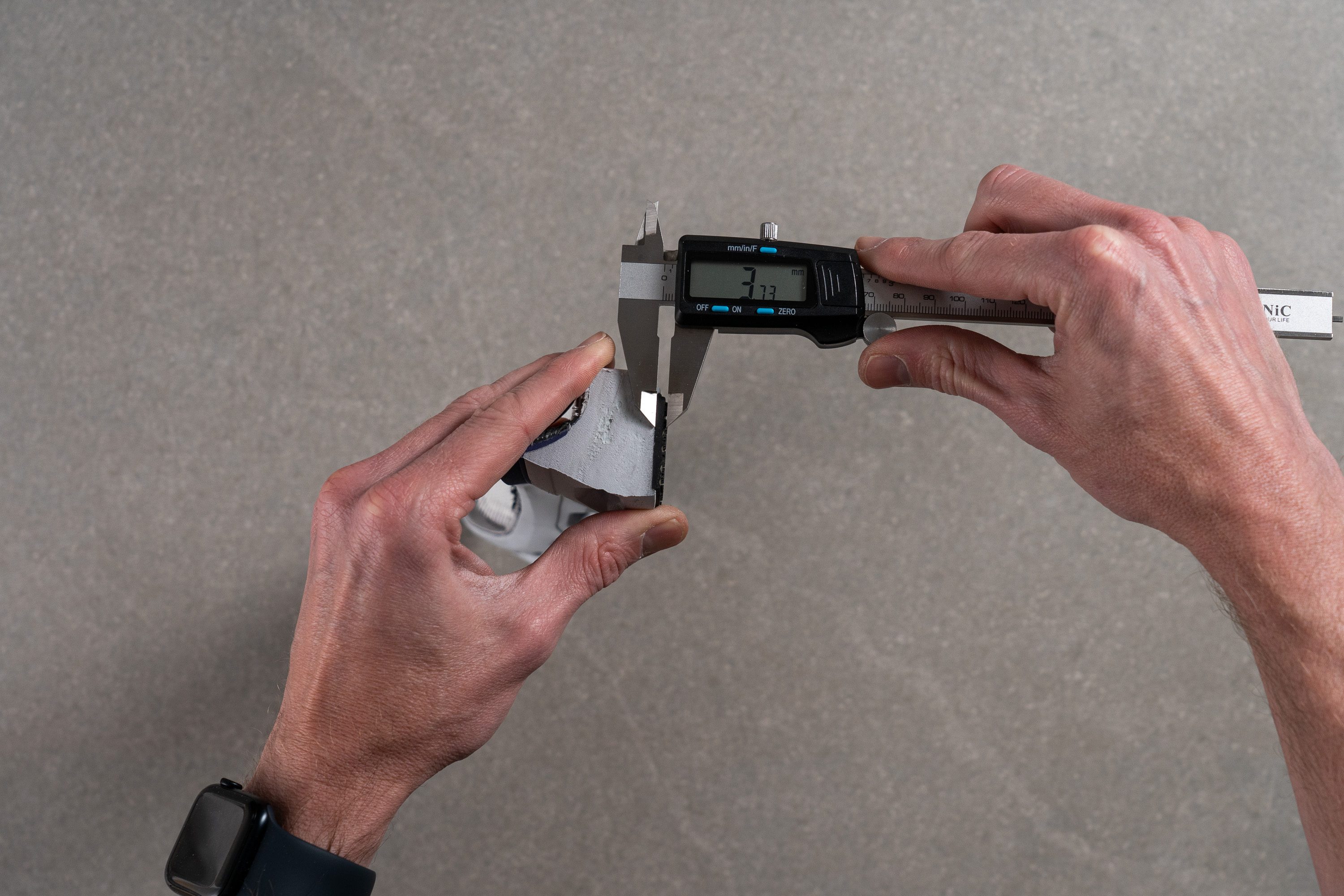
Thicker rubber means more weight but also more durability and protection.
To test the abrasion resistance, we press a Dremel against the outsole (always the same duration, pressure, and RPM) and look at the damage. Then we use a tyre gauge tread to precisely measure how deep the dent is. Shallow dents mean more durability, while a deeper dent means the outsole is more prone to wear or damage.
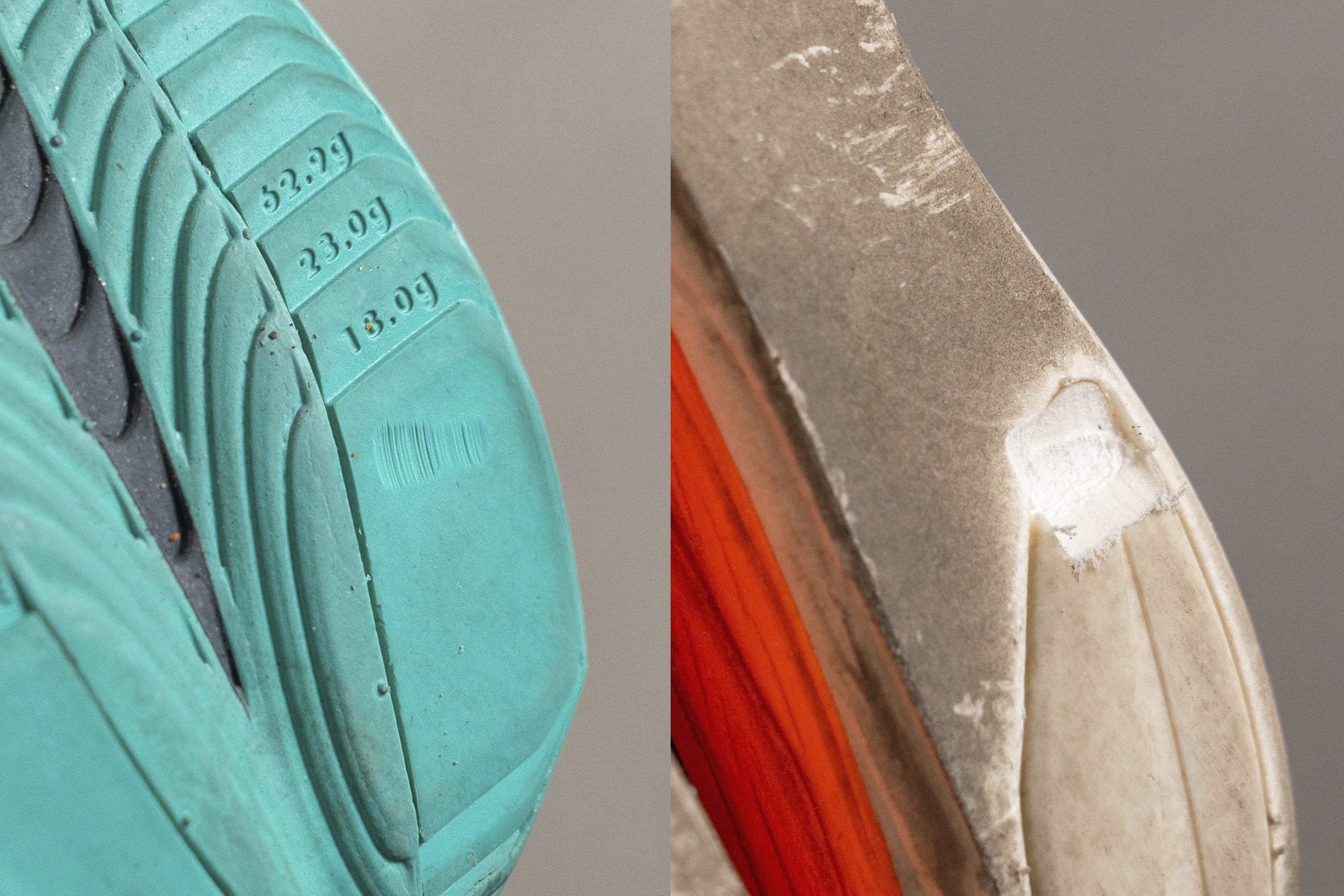
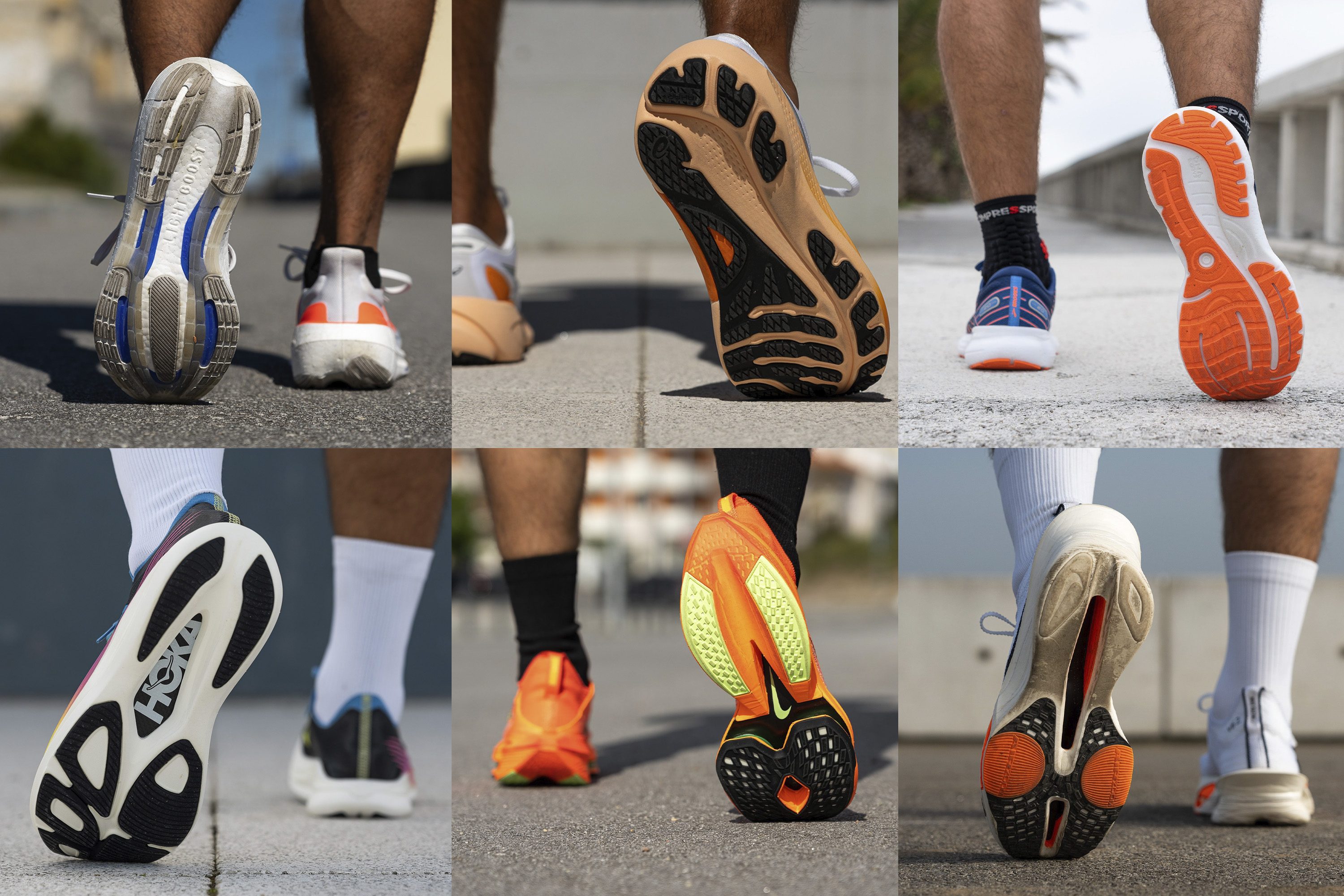
More flexibility means a more natural feeling
While stiffness brings more stability and even propulsion (think carbon plates), some runners still prefer more flexible running shoes. This is because more flexibility comes with a more natural running feel.
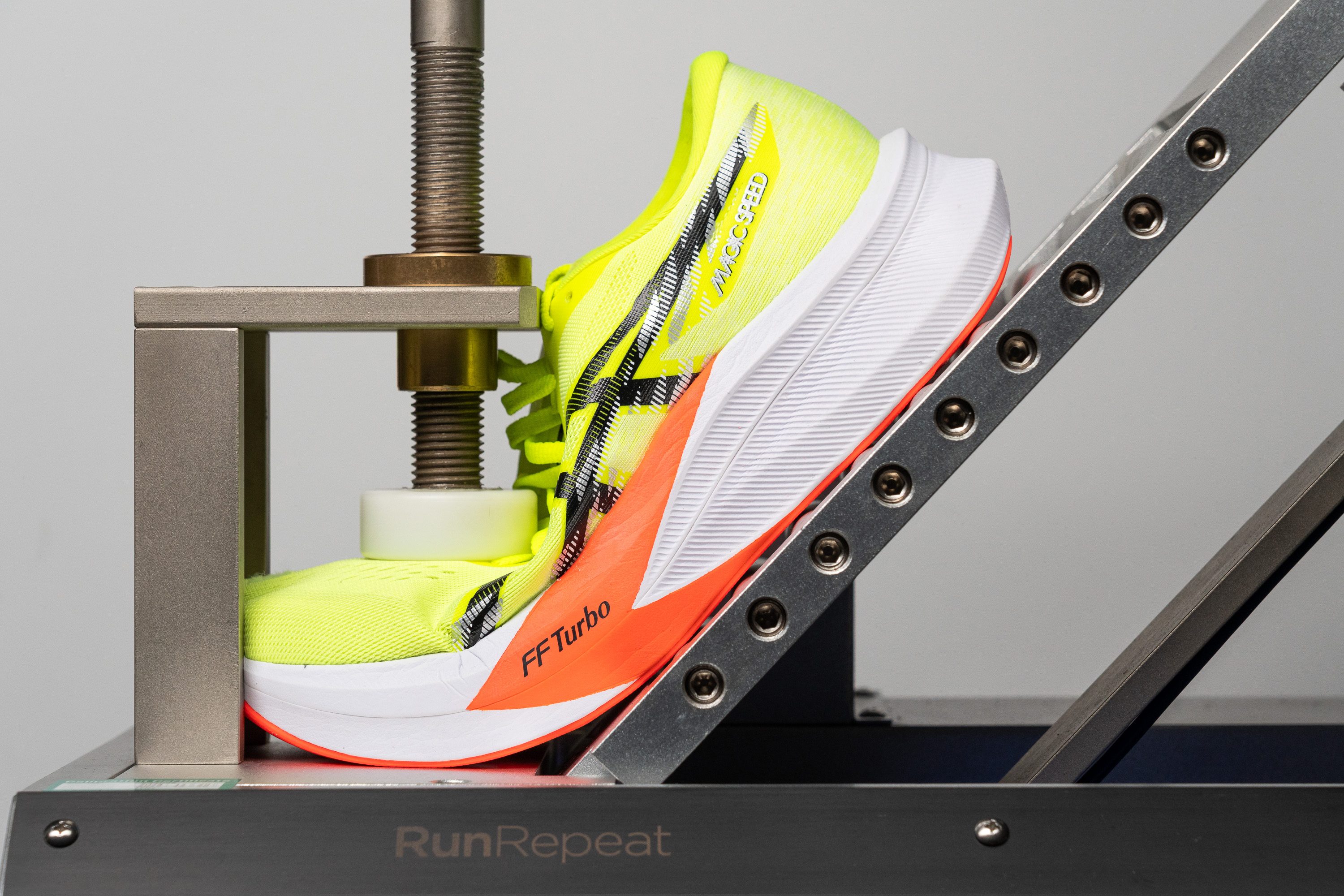
To test flexibility, we use a dedicated machine to lock the toebox in place and bend the shoe to 30 degrees: higher numbers in Newtons mean more force was needed to bend the shoe, which means it’s stiffer. Lower numbers mean the shoe is more flexible.
Here are the most flexible running shoes for supination:
And in case you prefer a stiffer ride, here’s our always-updated list:
What happens at longer distances?
Simply, our legs and feet get tired. Then, they might enjoy more support and stability. This means different things for different runners, as we often see in ultra races when they swap their running shoes.
This extra support can mean getting shoes that:
- Are half a size or a full size larger. This works for runners whose feet swell a lot
- Have a higher heel drop. This helps runners who sense they are getting tired in their lower leg area, especially if they are changing from forefoot striking to heel striking
- Are stiffer and/or have a wider platform. This brings more stability so there’s less unwanted wobbling that tyres out the feet even more
- Have stability features like sidewalls, sole flares, maybe even rails or similar technology that stabilises the feet even more.
We wrote extensively about stability features and you can read more about the geometry elements used in stability shoes or trademarked technologies in our guide on Pronation.
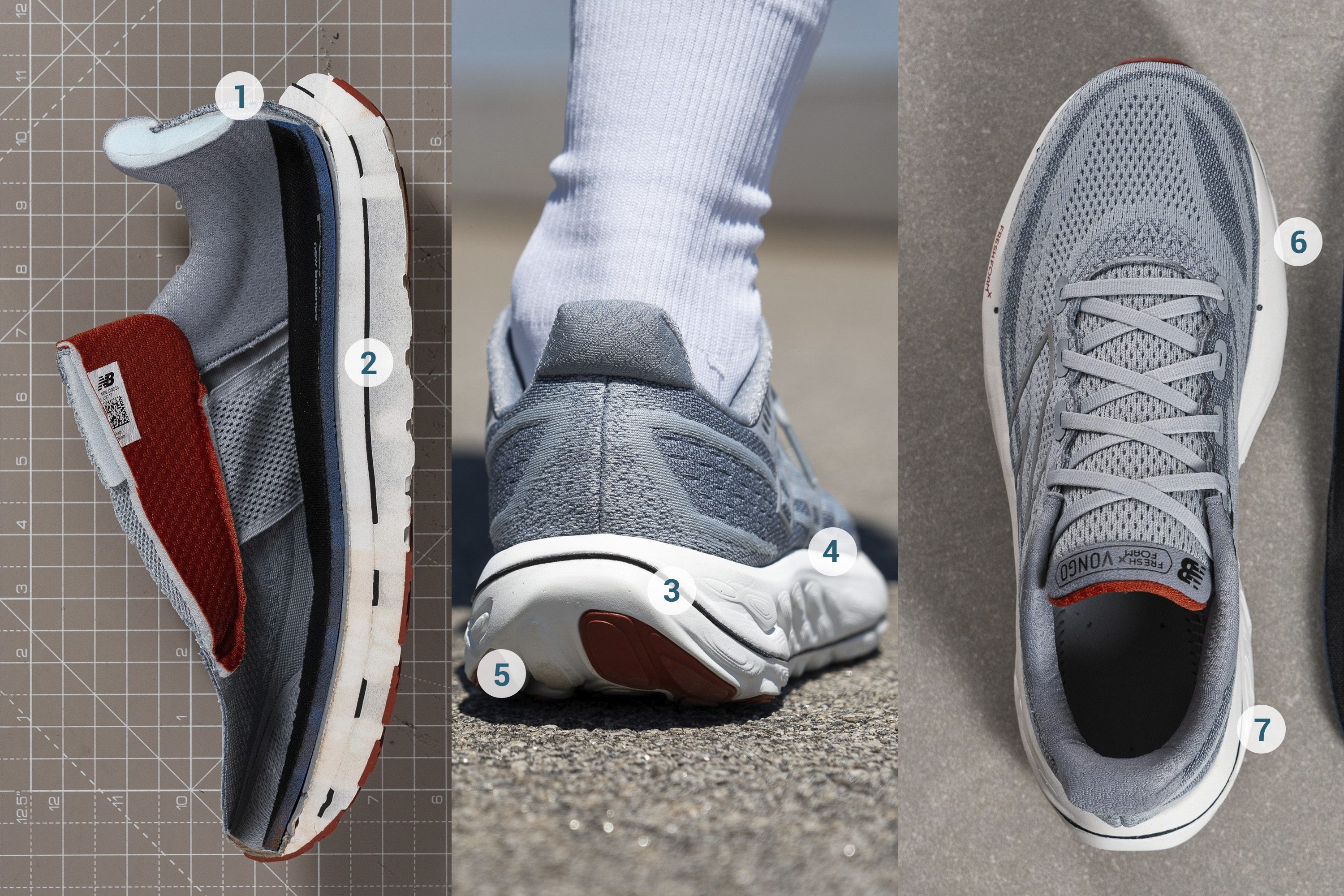
There are, of course, other elements you can look for, that bring more stability. Things like a wider base, sole flares, stiffer platform, etc.
When it comes to the width of the base, if you’re a forefoot striker, look for a wider base at the forefoot. We do both measurements, of course, so you can look them up.
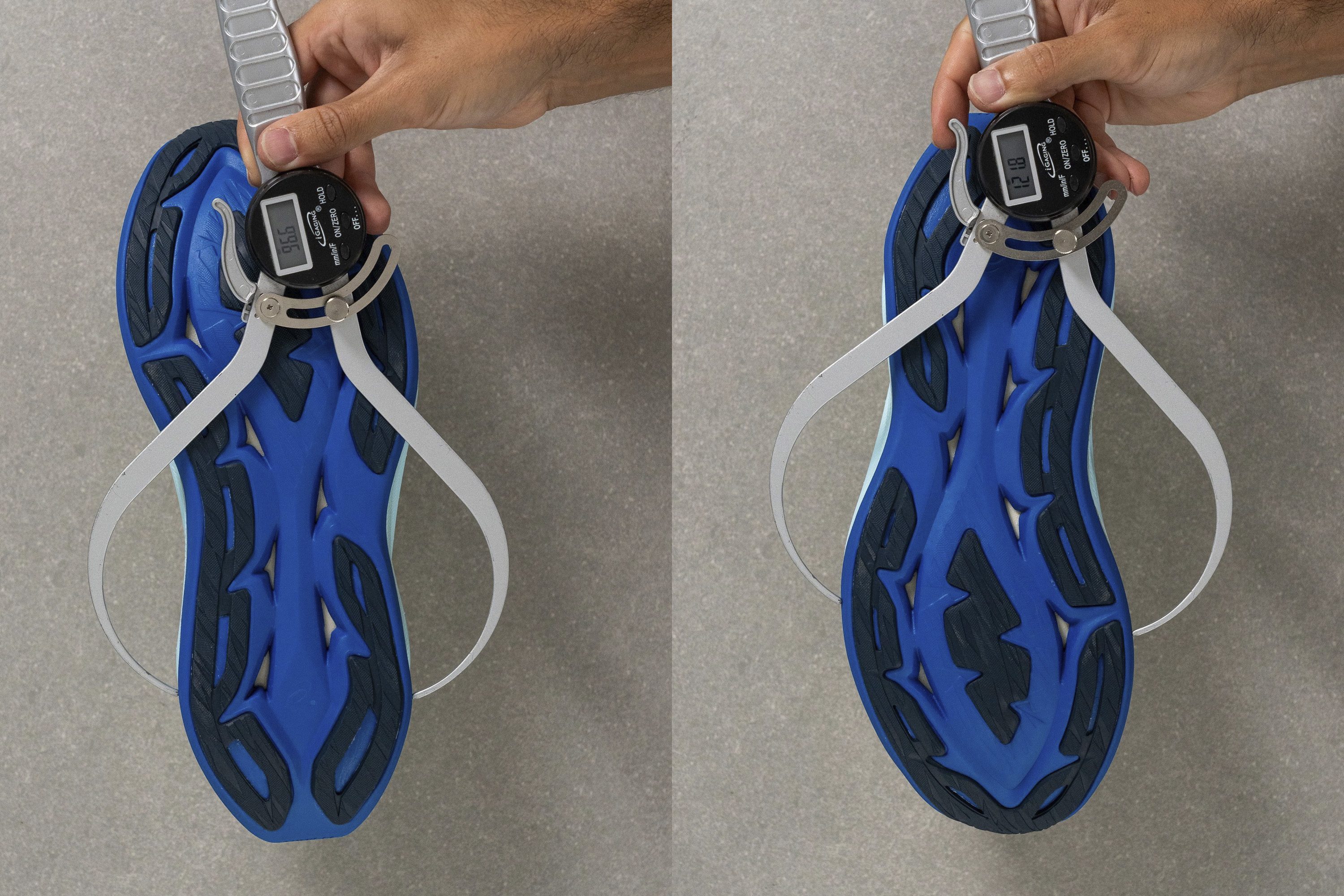
Supination trail running shoes?
There are no special supination trail running shoes. Just like for road, supinators go for the neutral shoes. Trail shoes don’t even have a category for stability shoes (which would be a much larger group than the supination one).
This is because the terrain varies a lot; it’s constantly changing with the ups, downs, pebbles, and smaller and larger obstacles. It's difficult to stabilise feet or ankles on such terrain but there are features that can help you feel more stable and supported, like a stiff base, wide base, stiff heel counter, etc.
